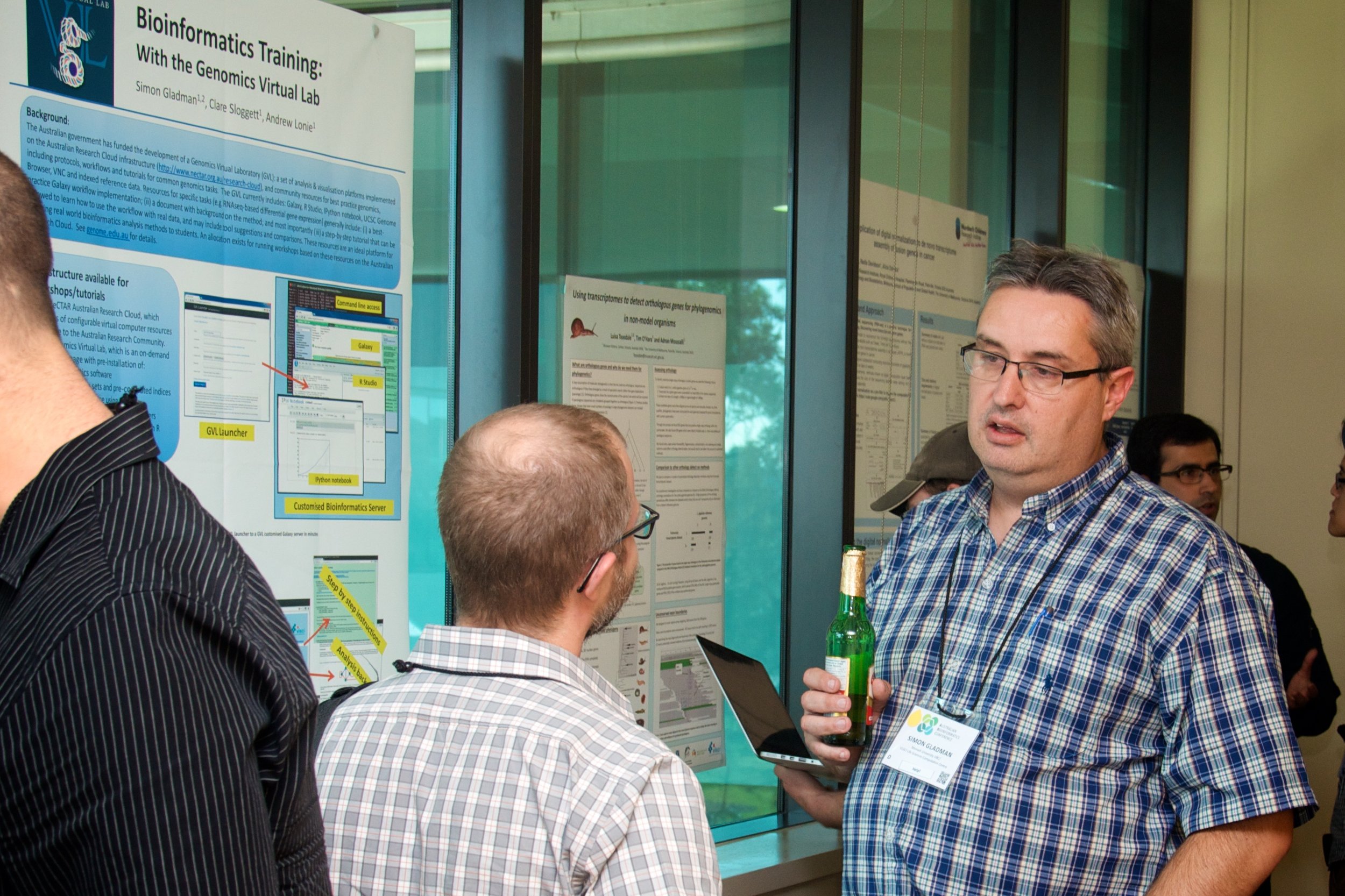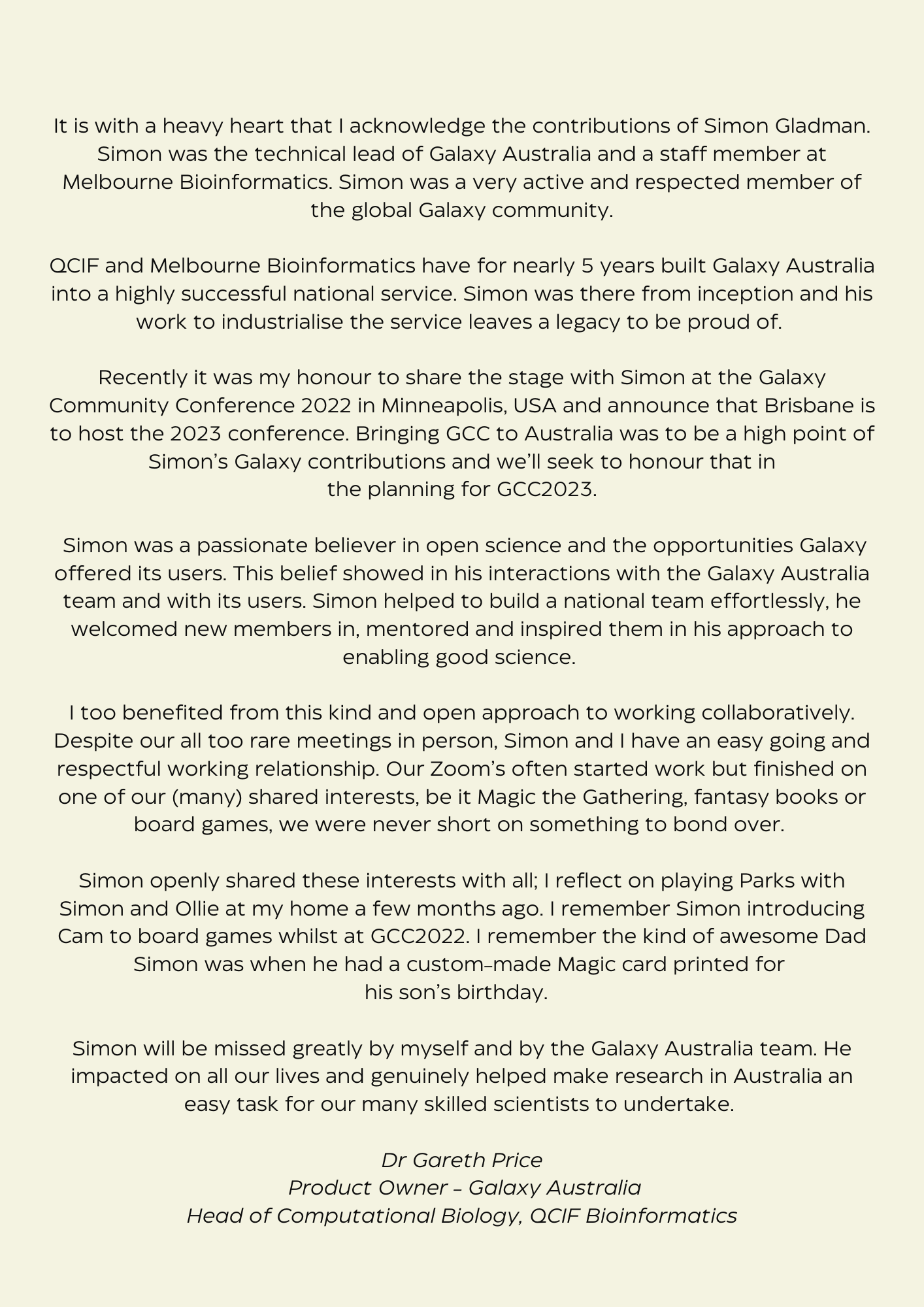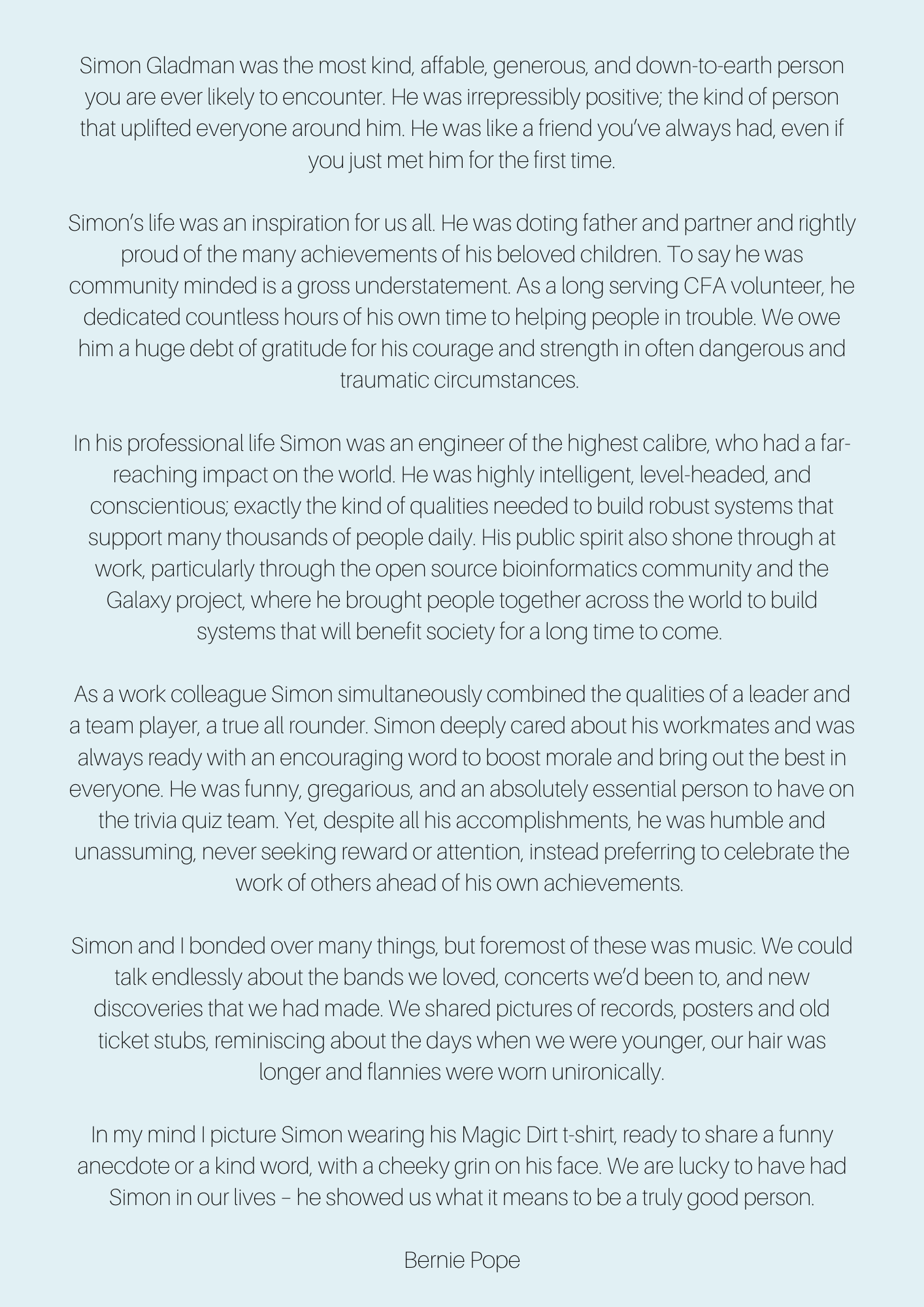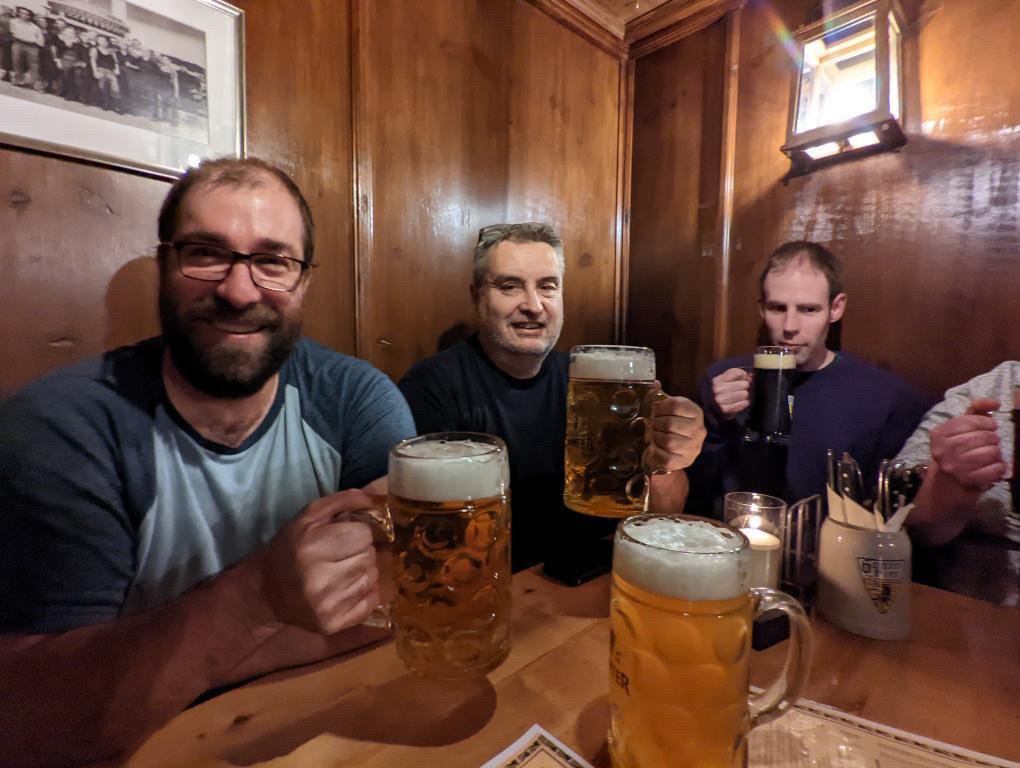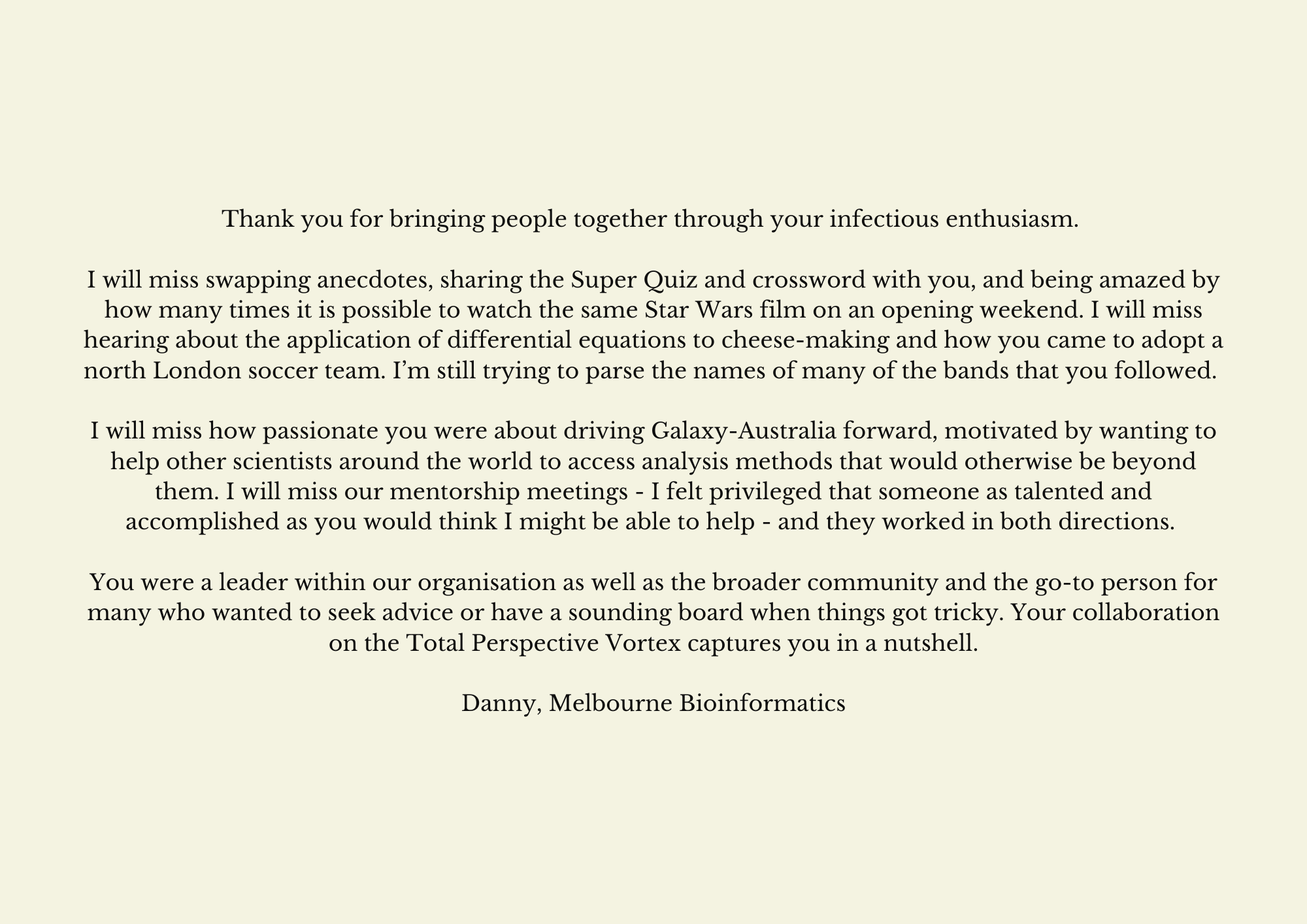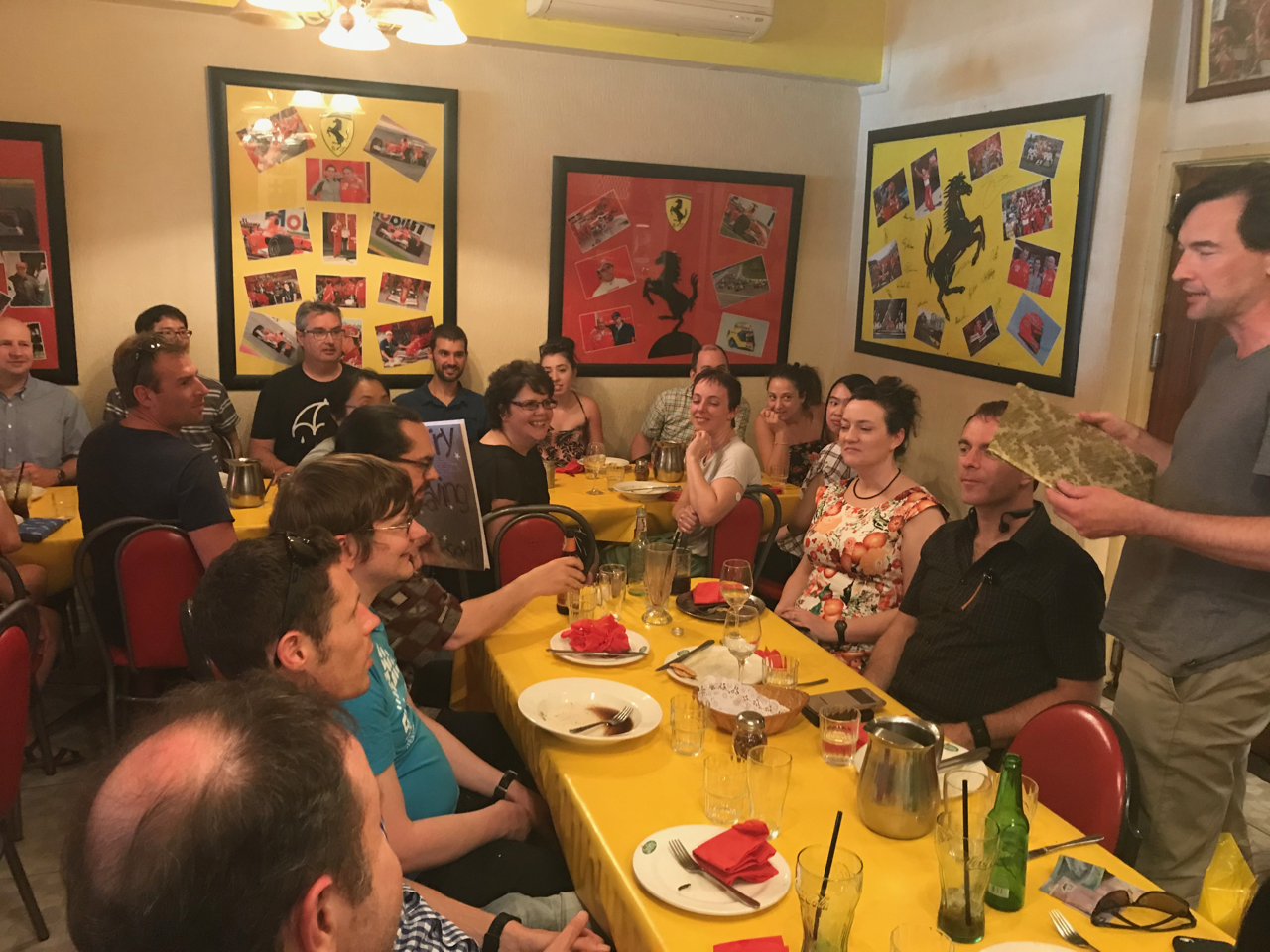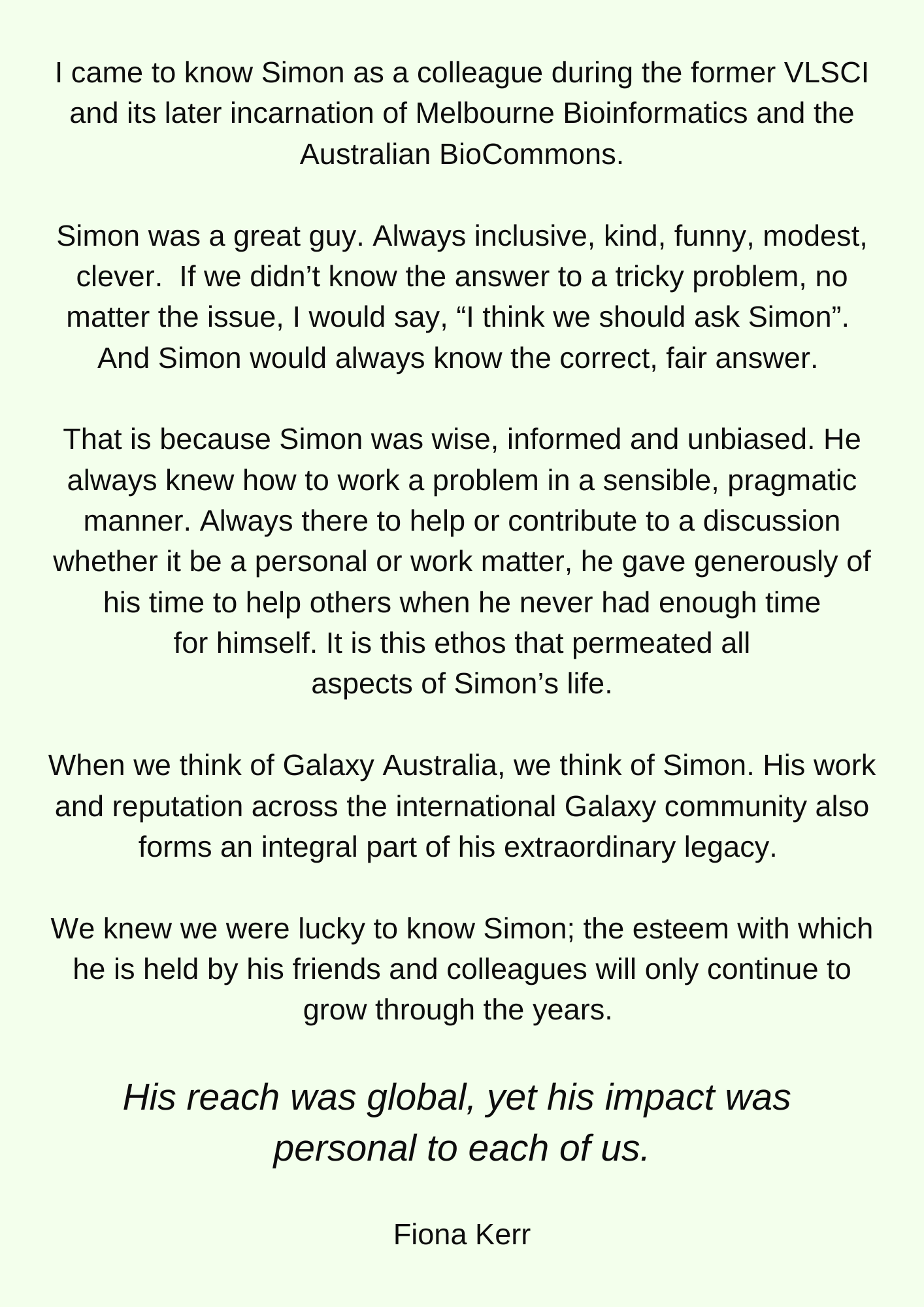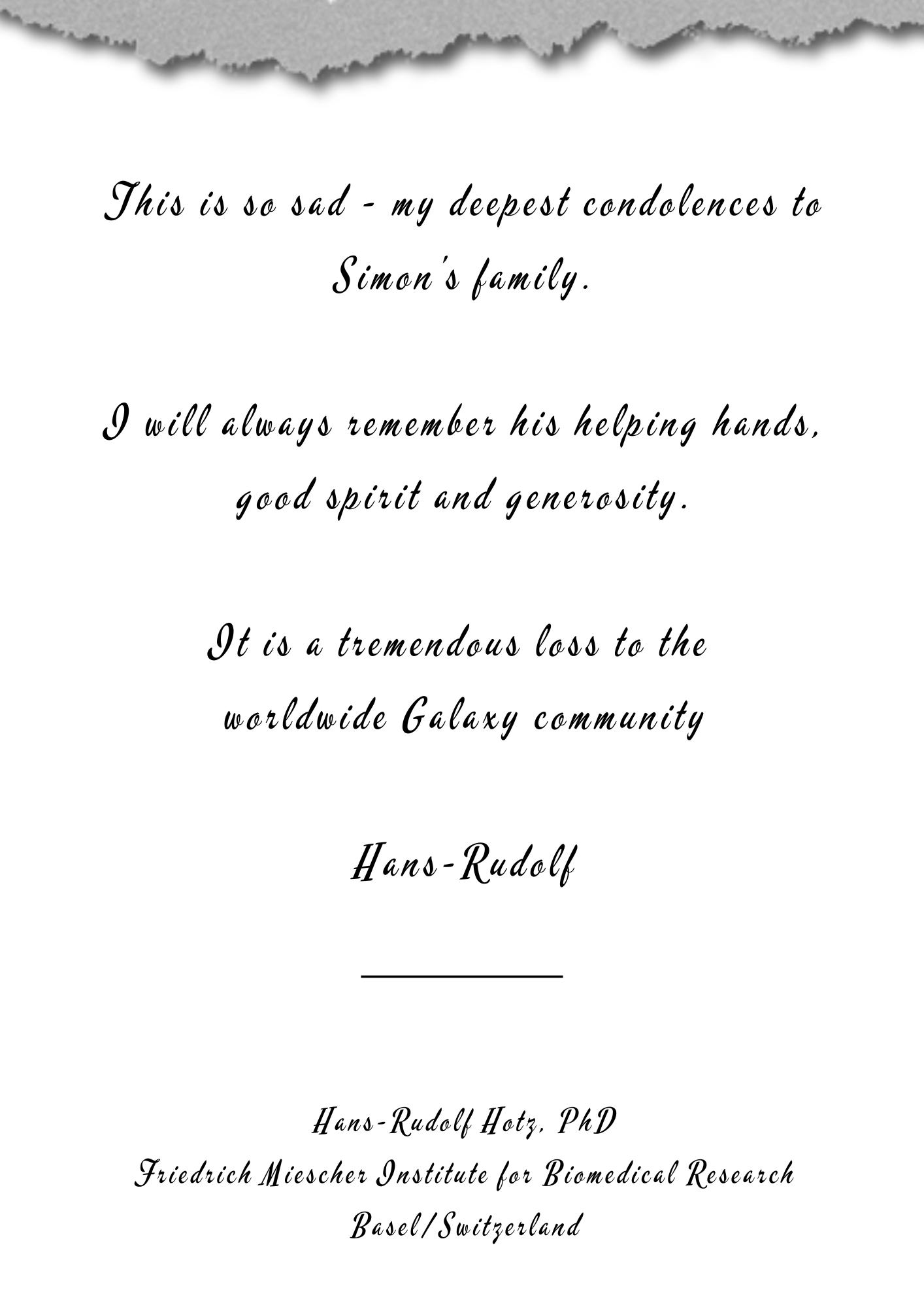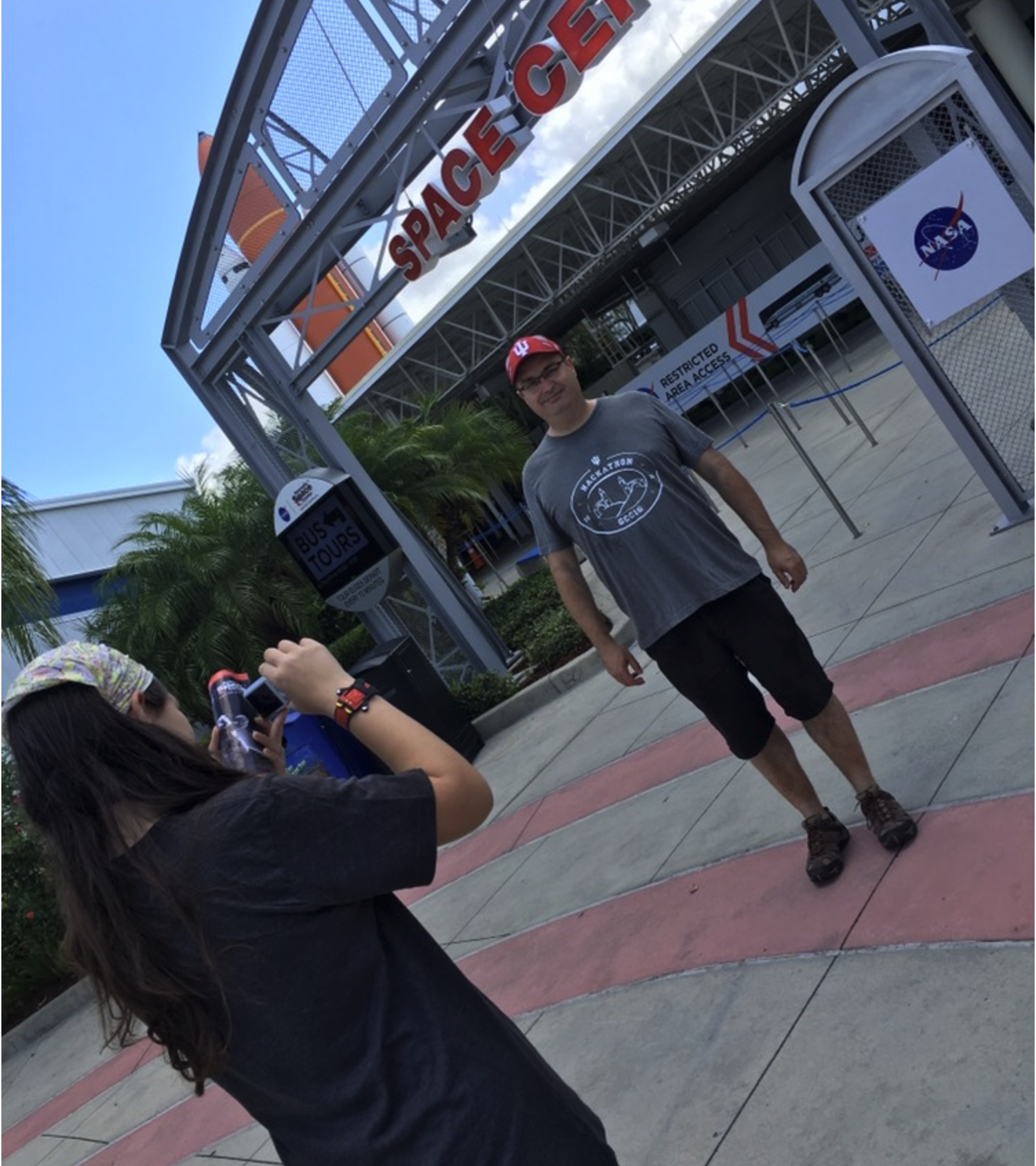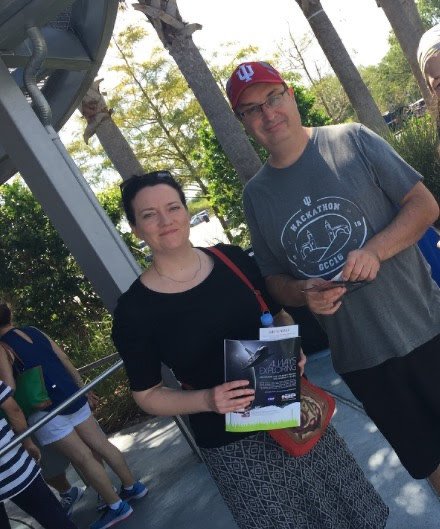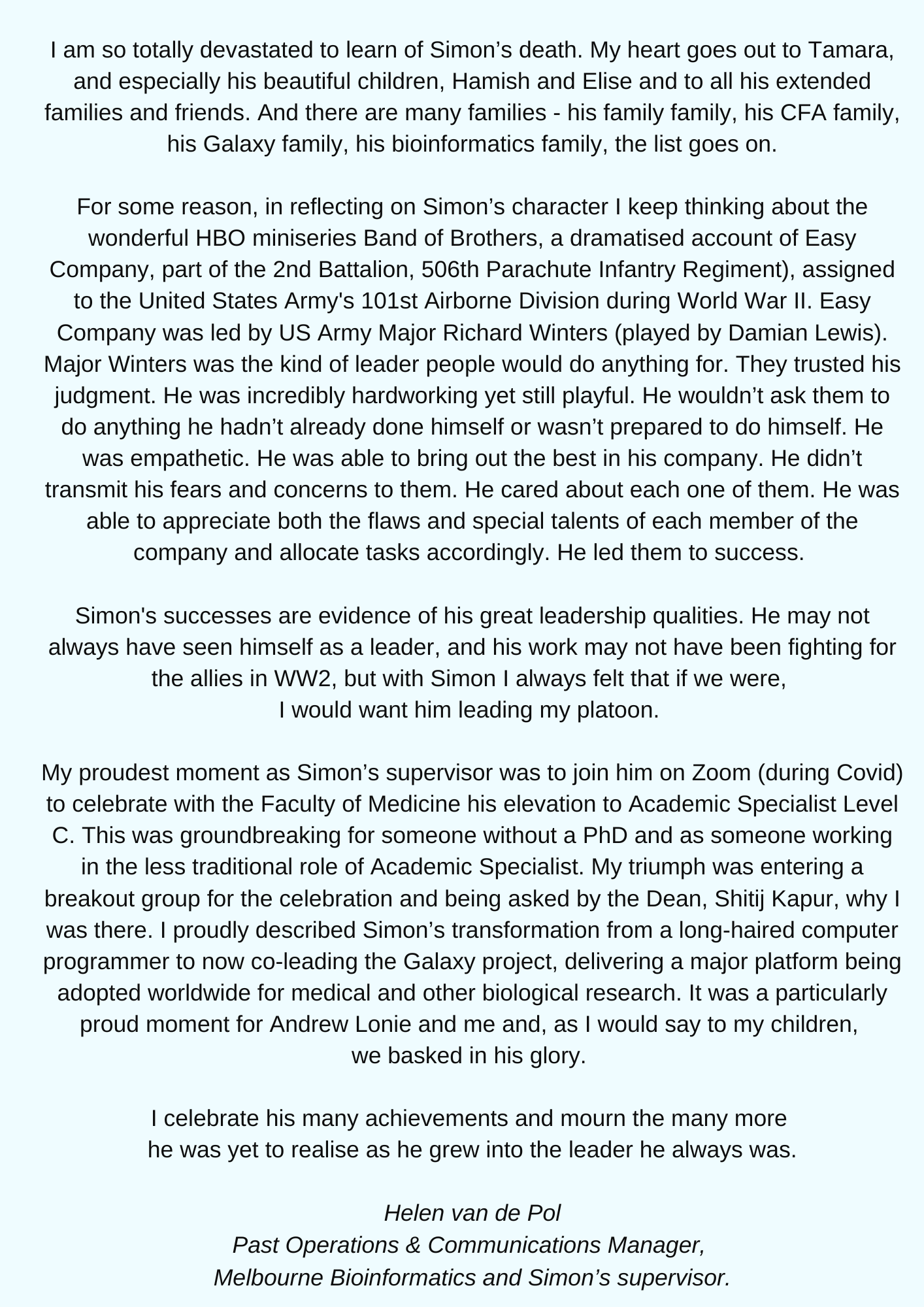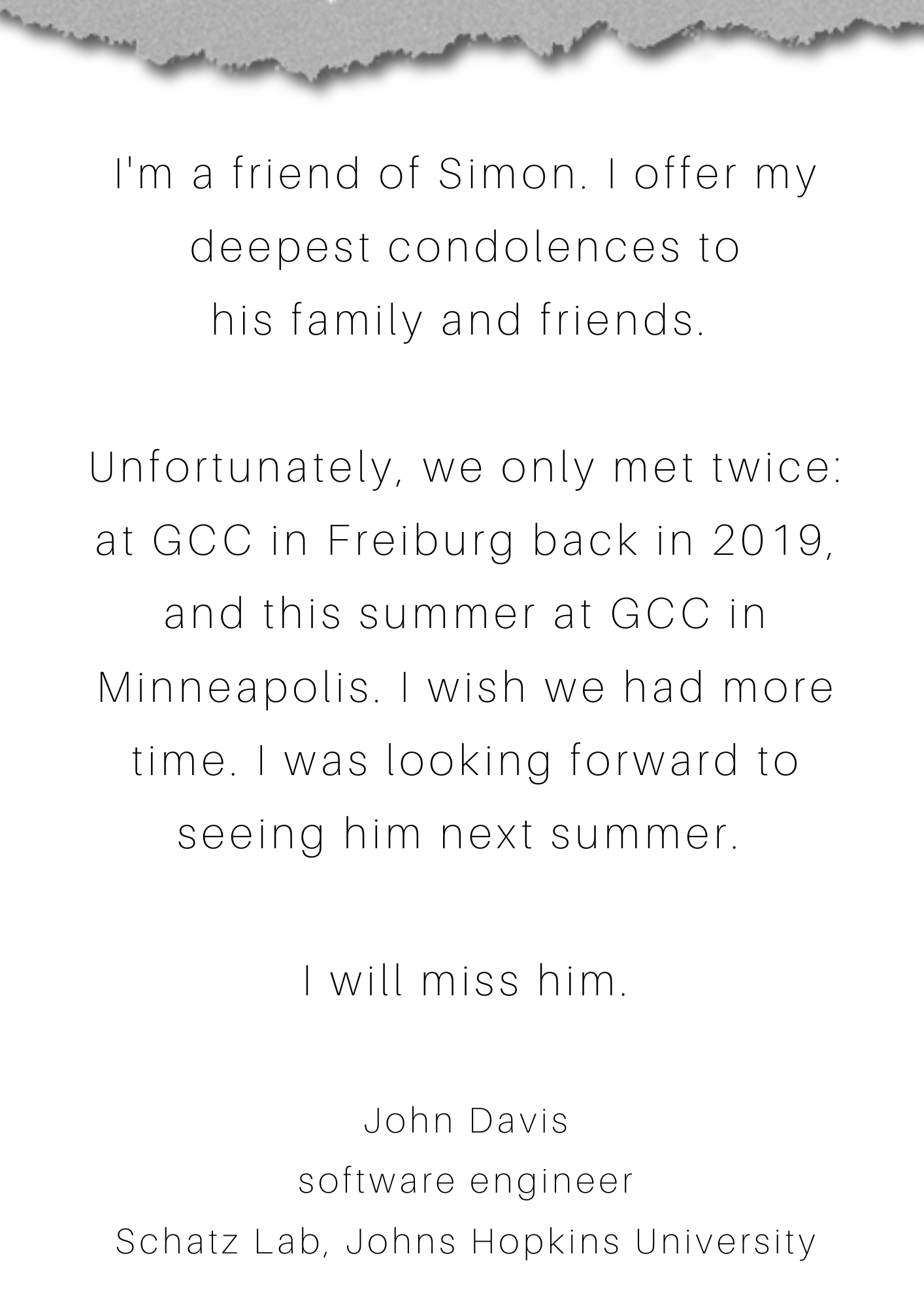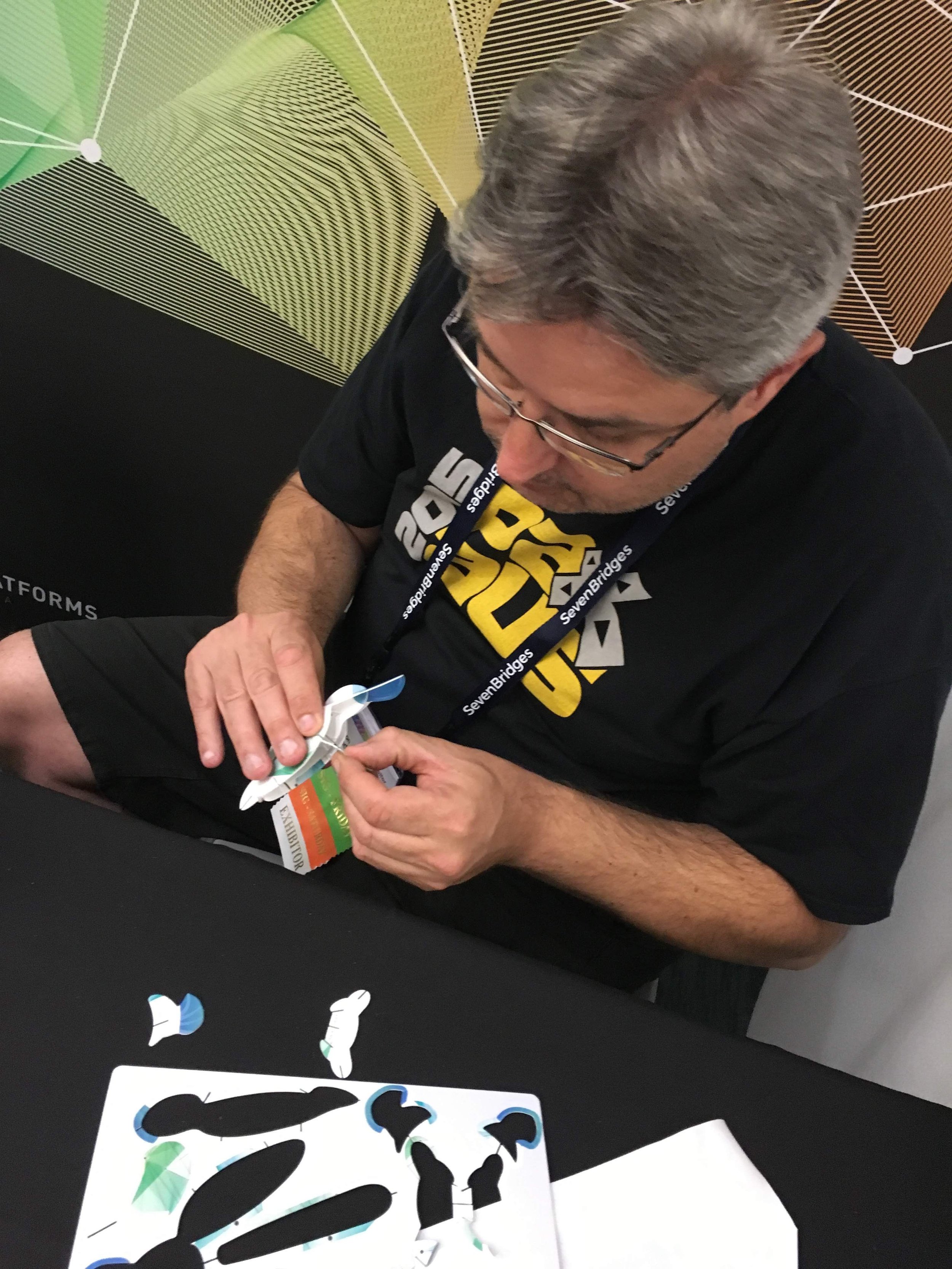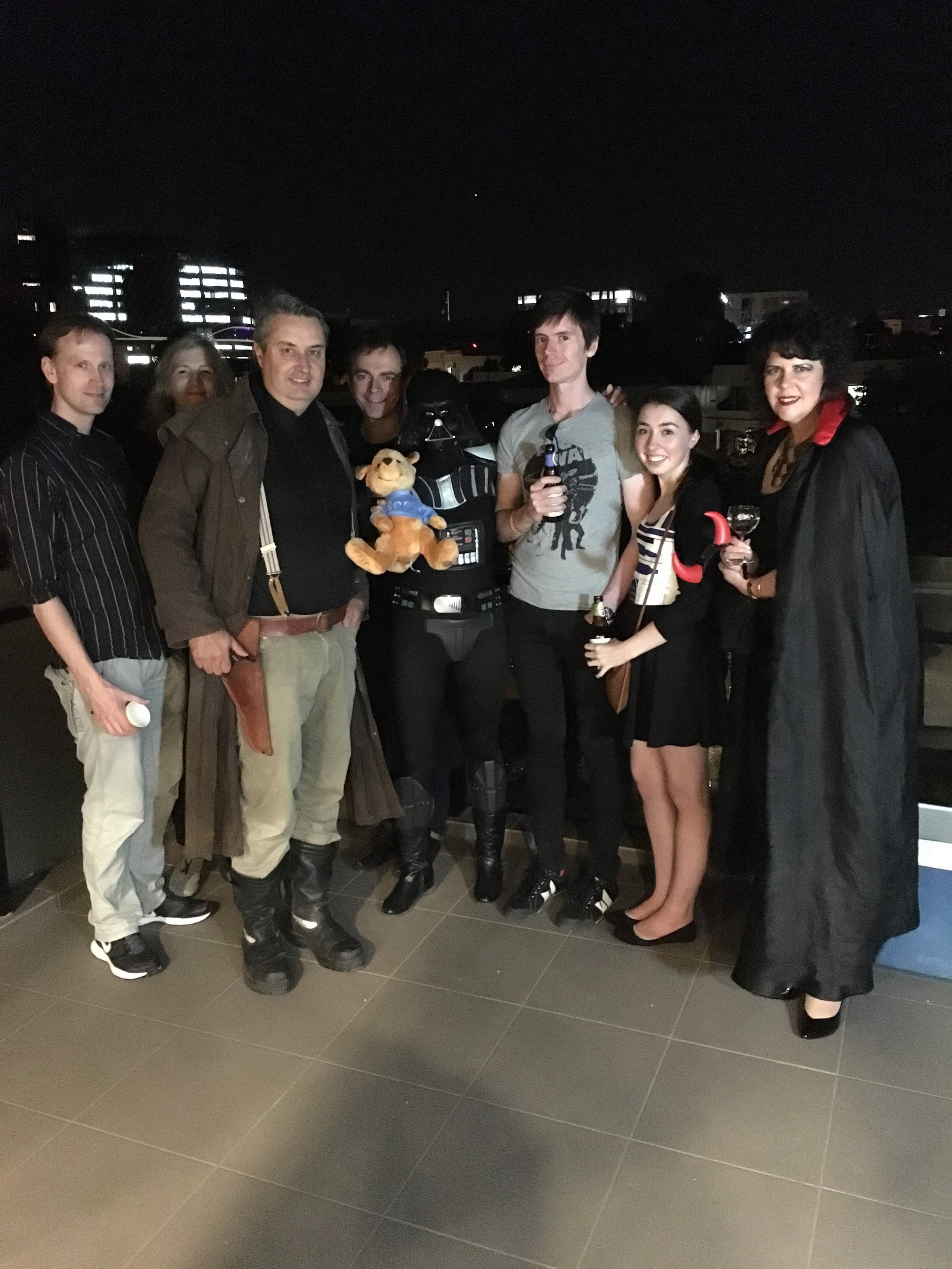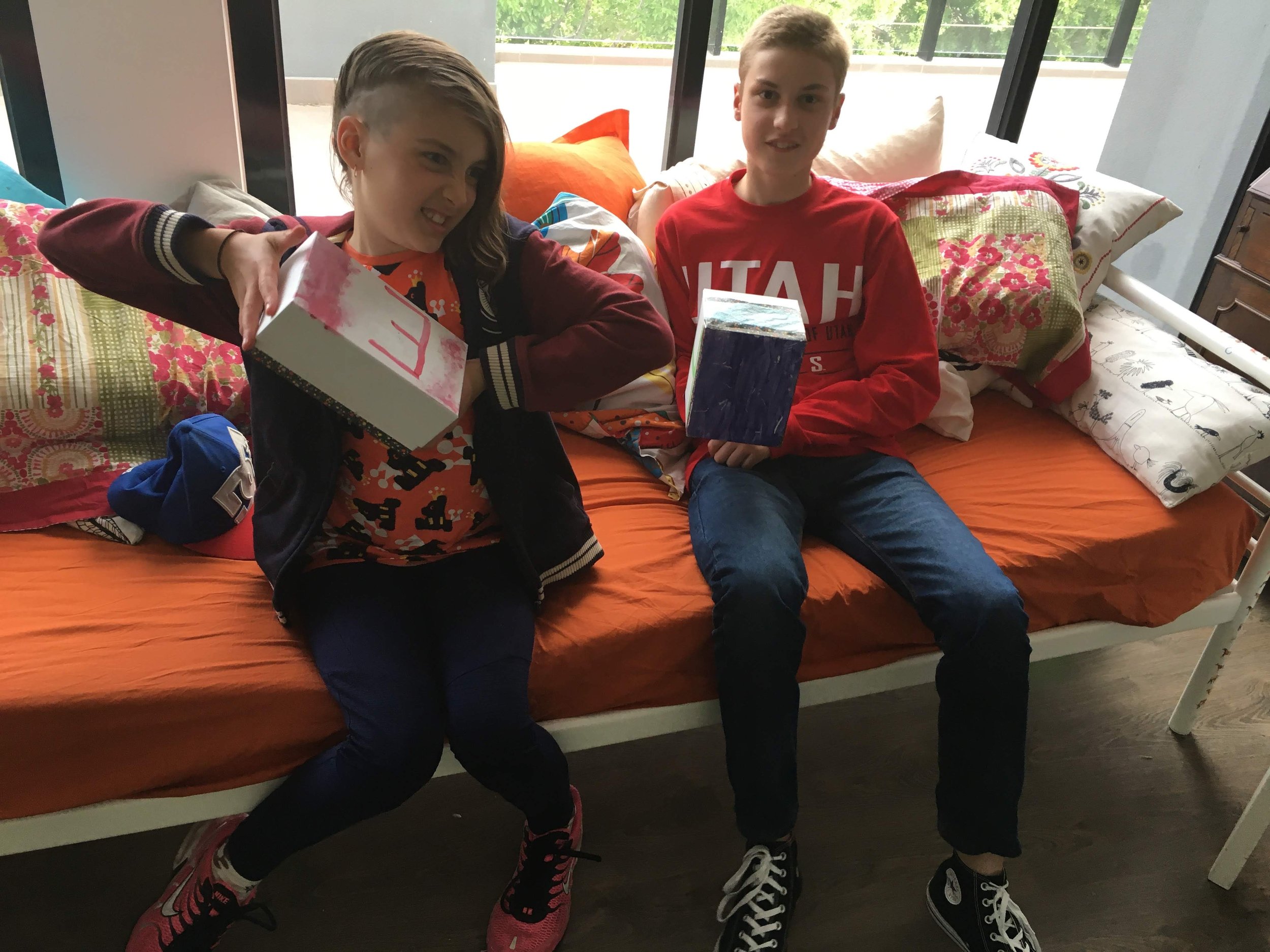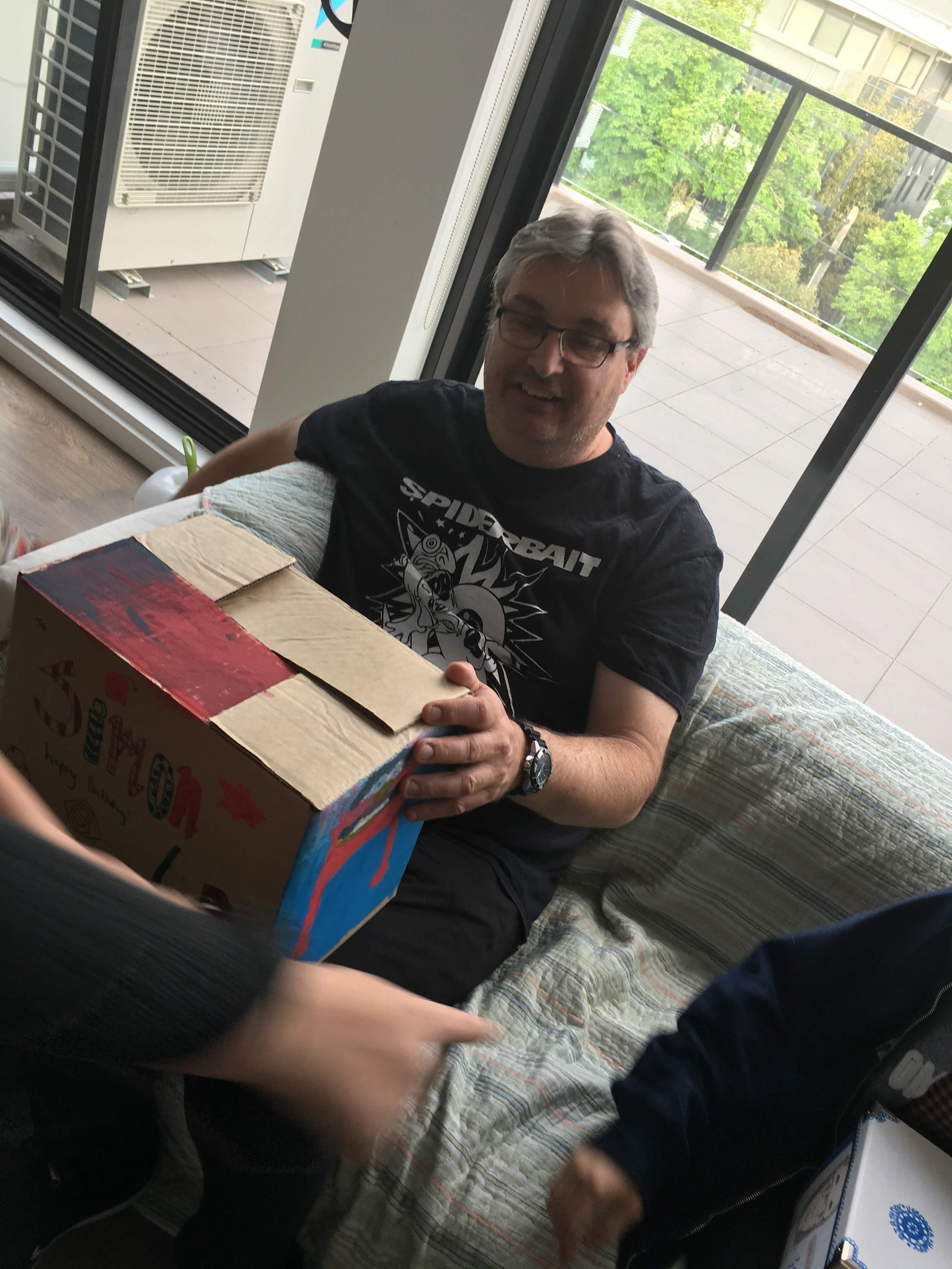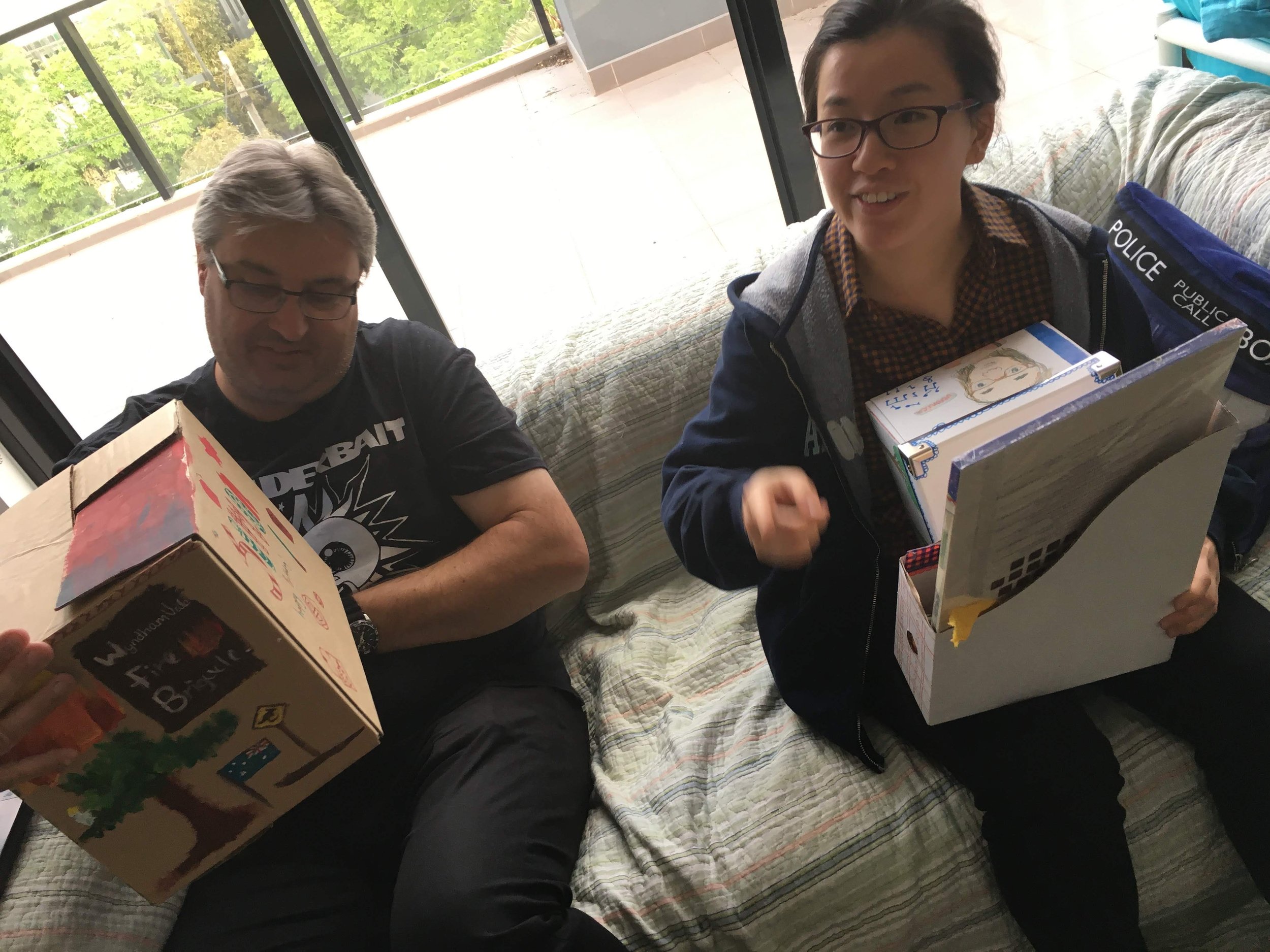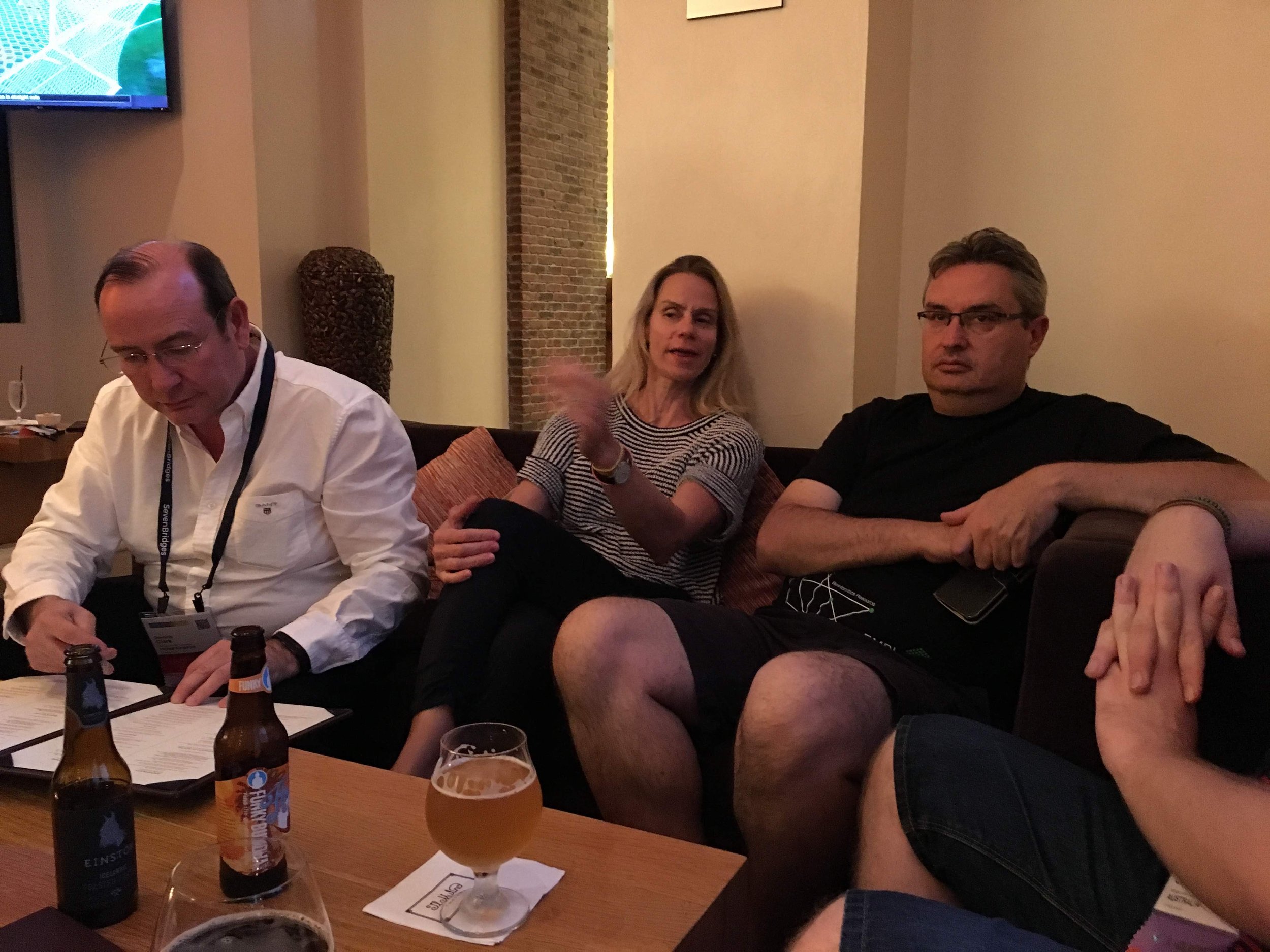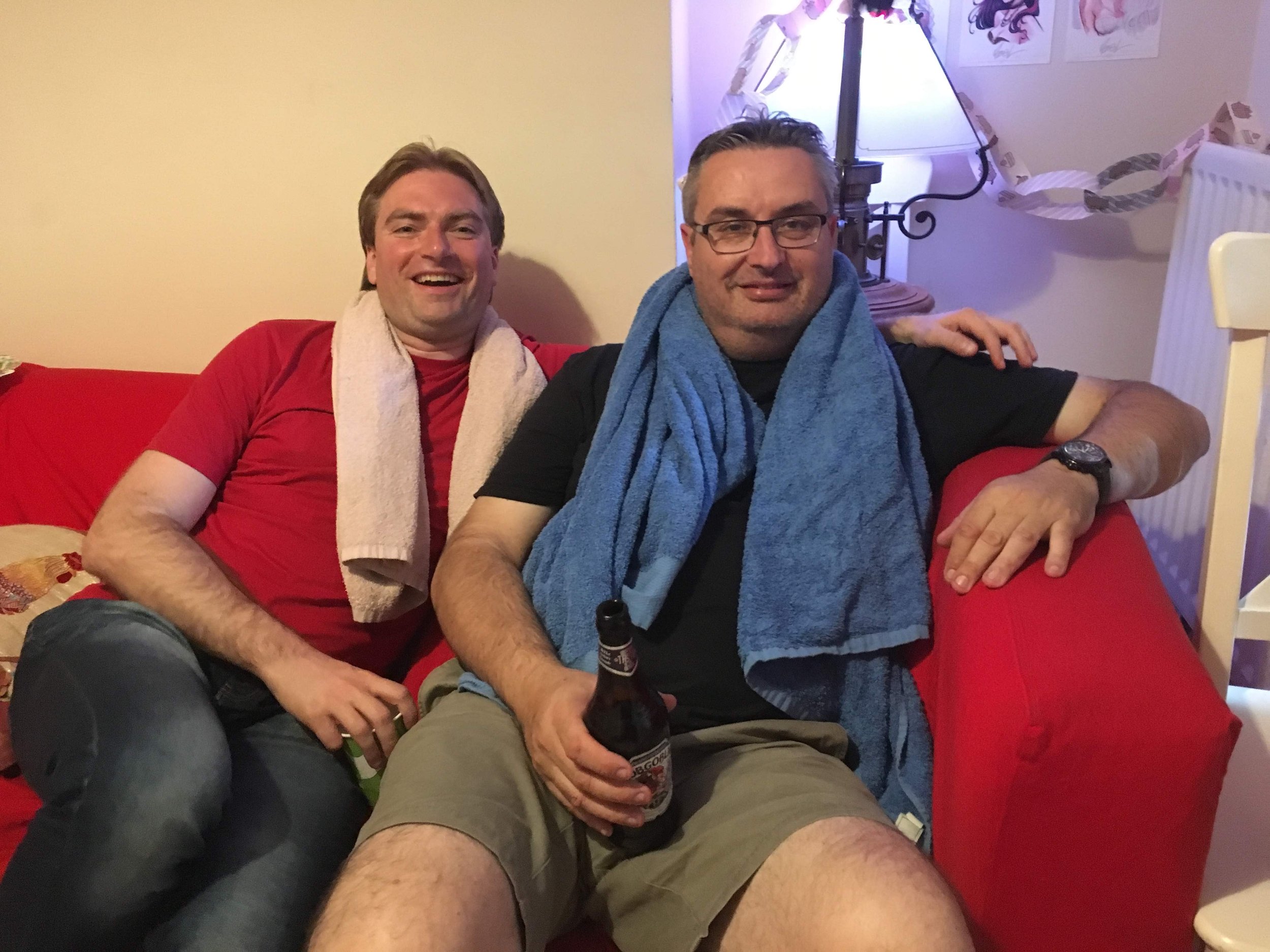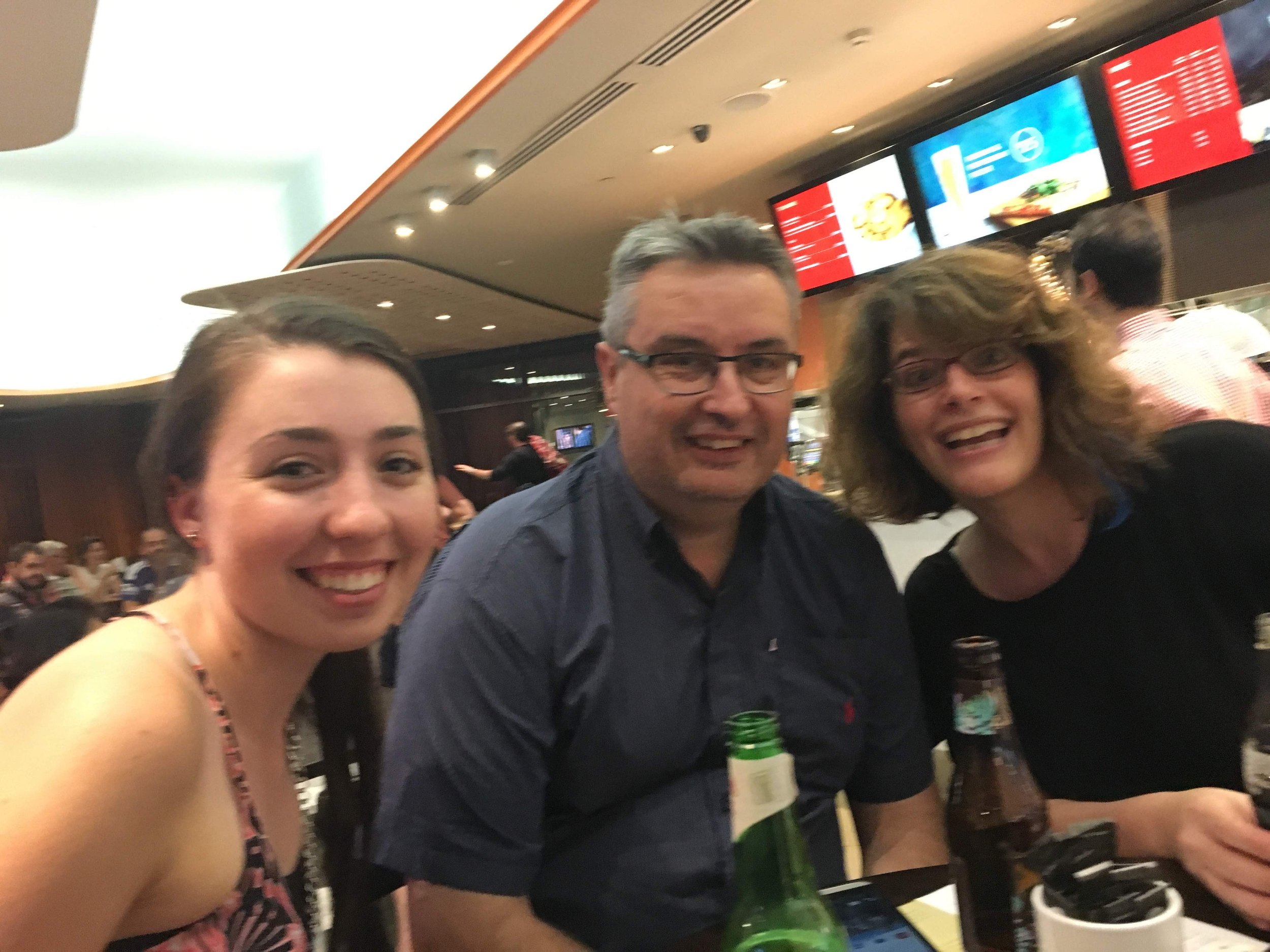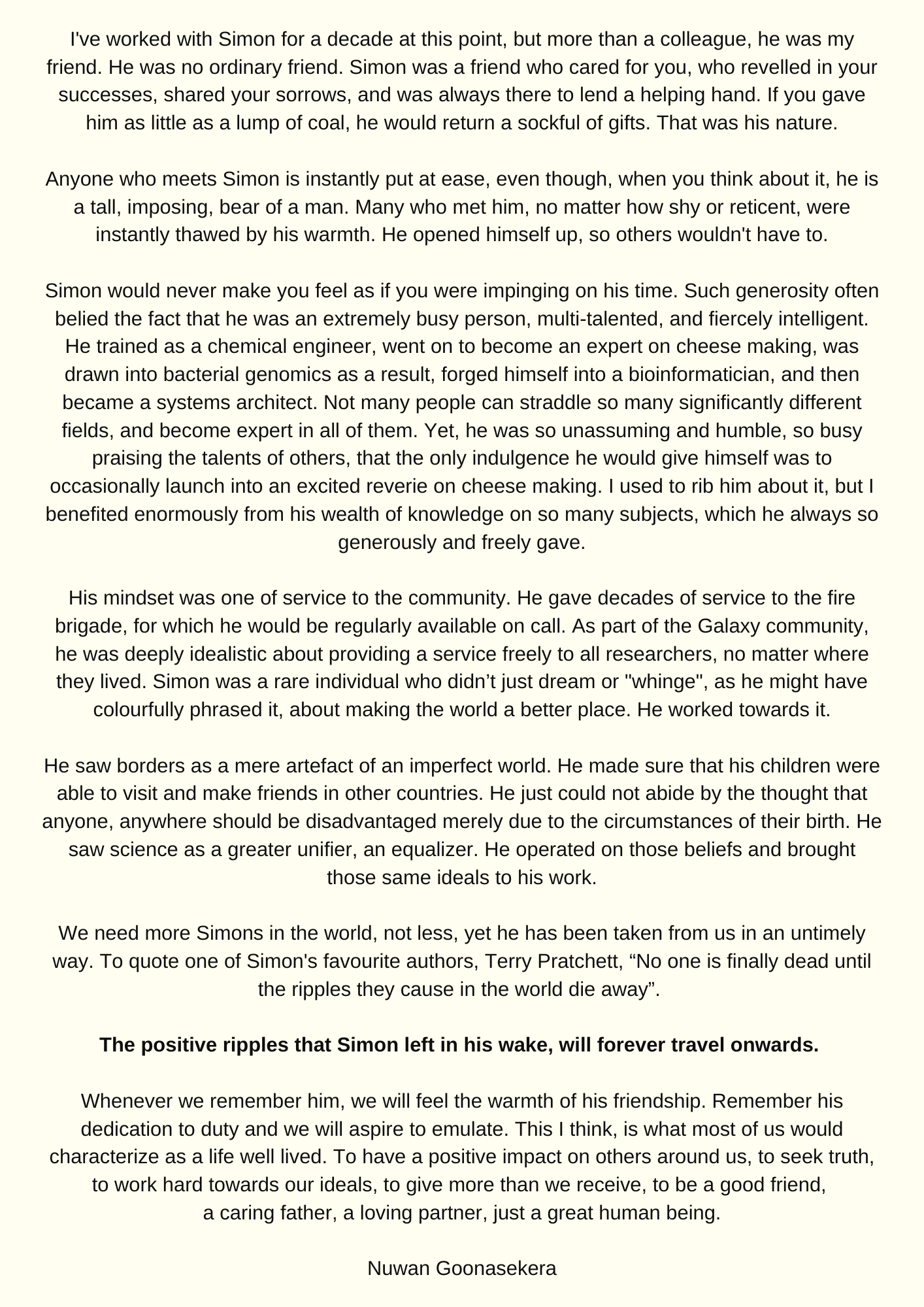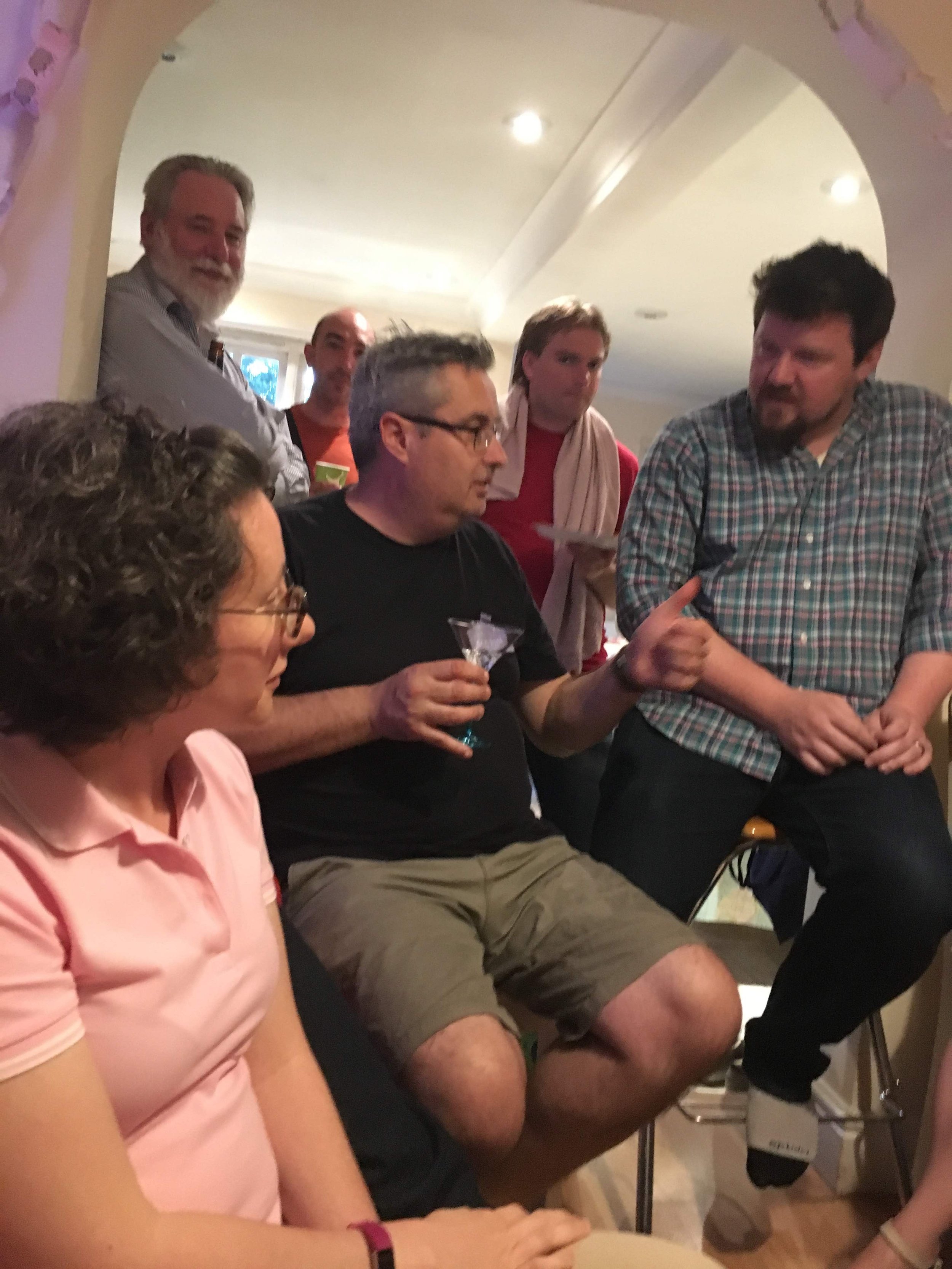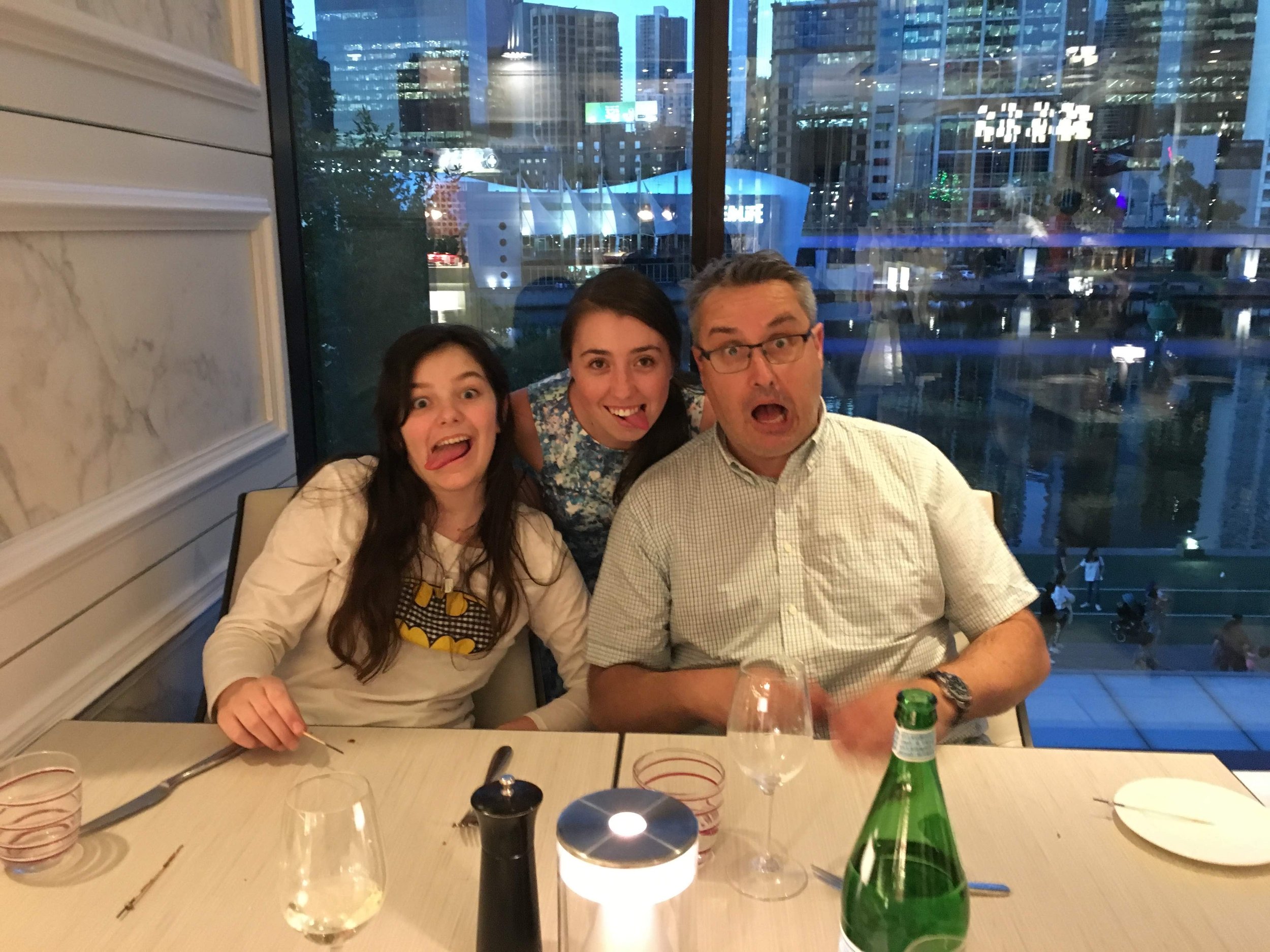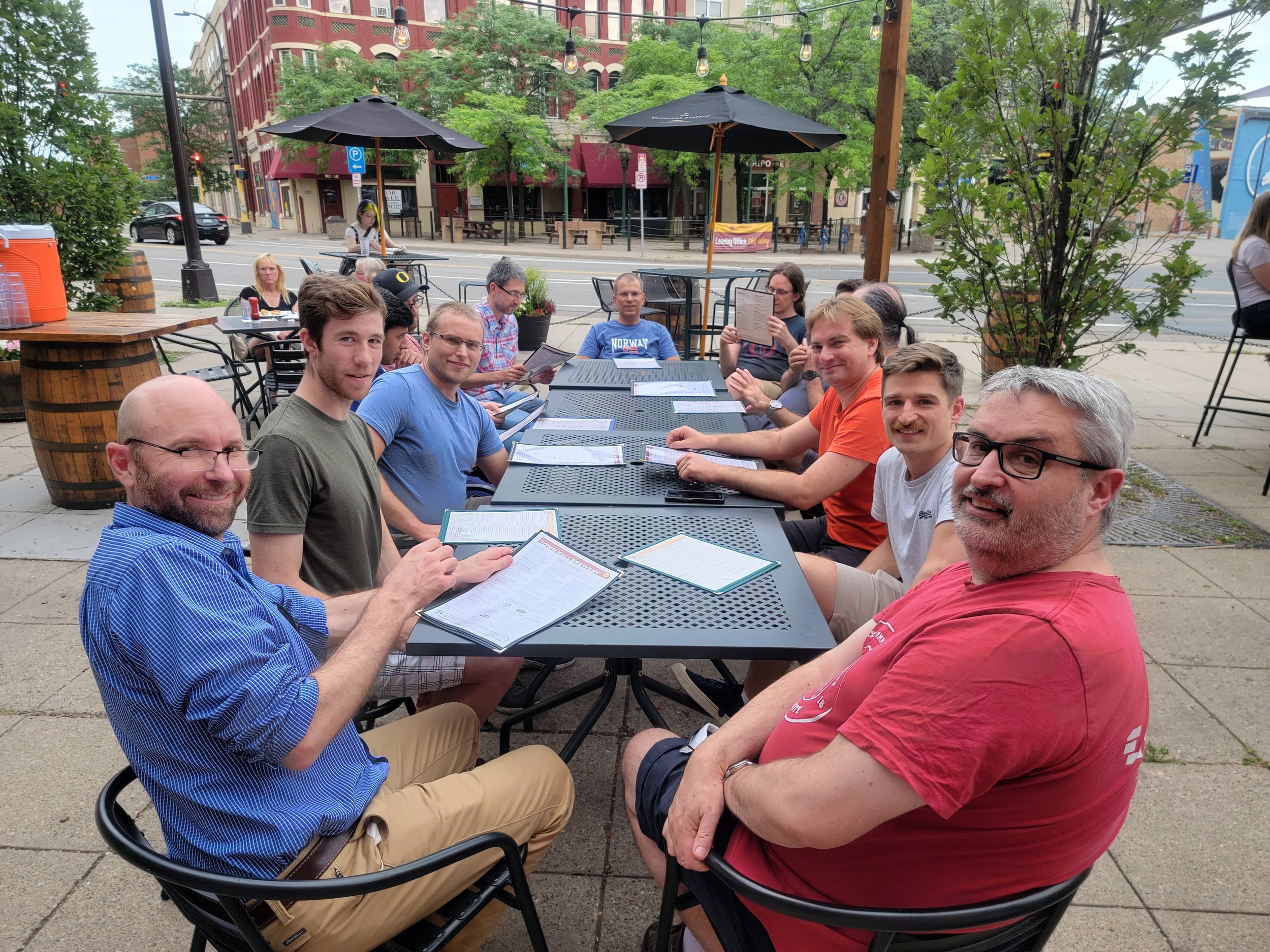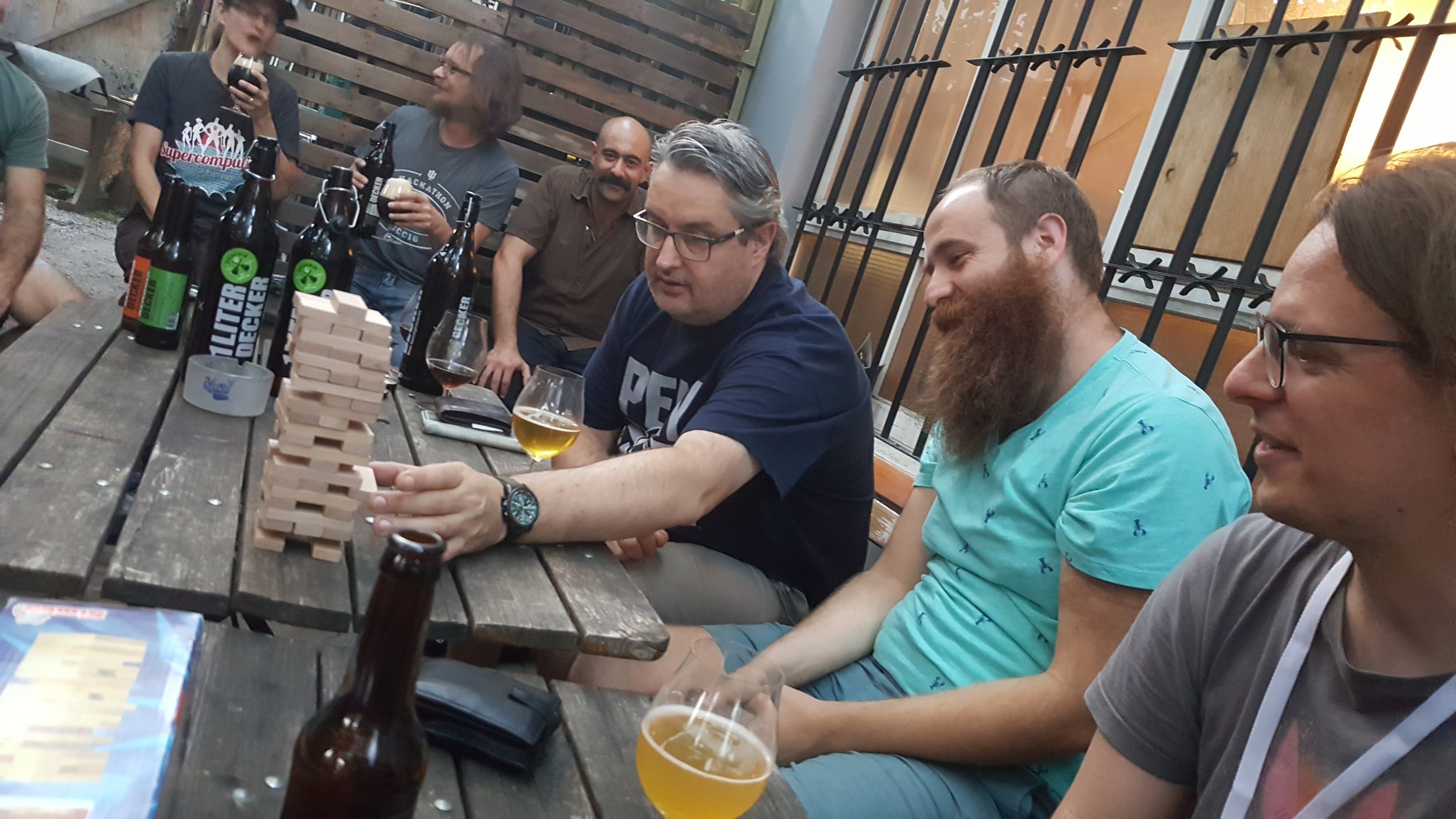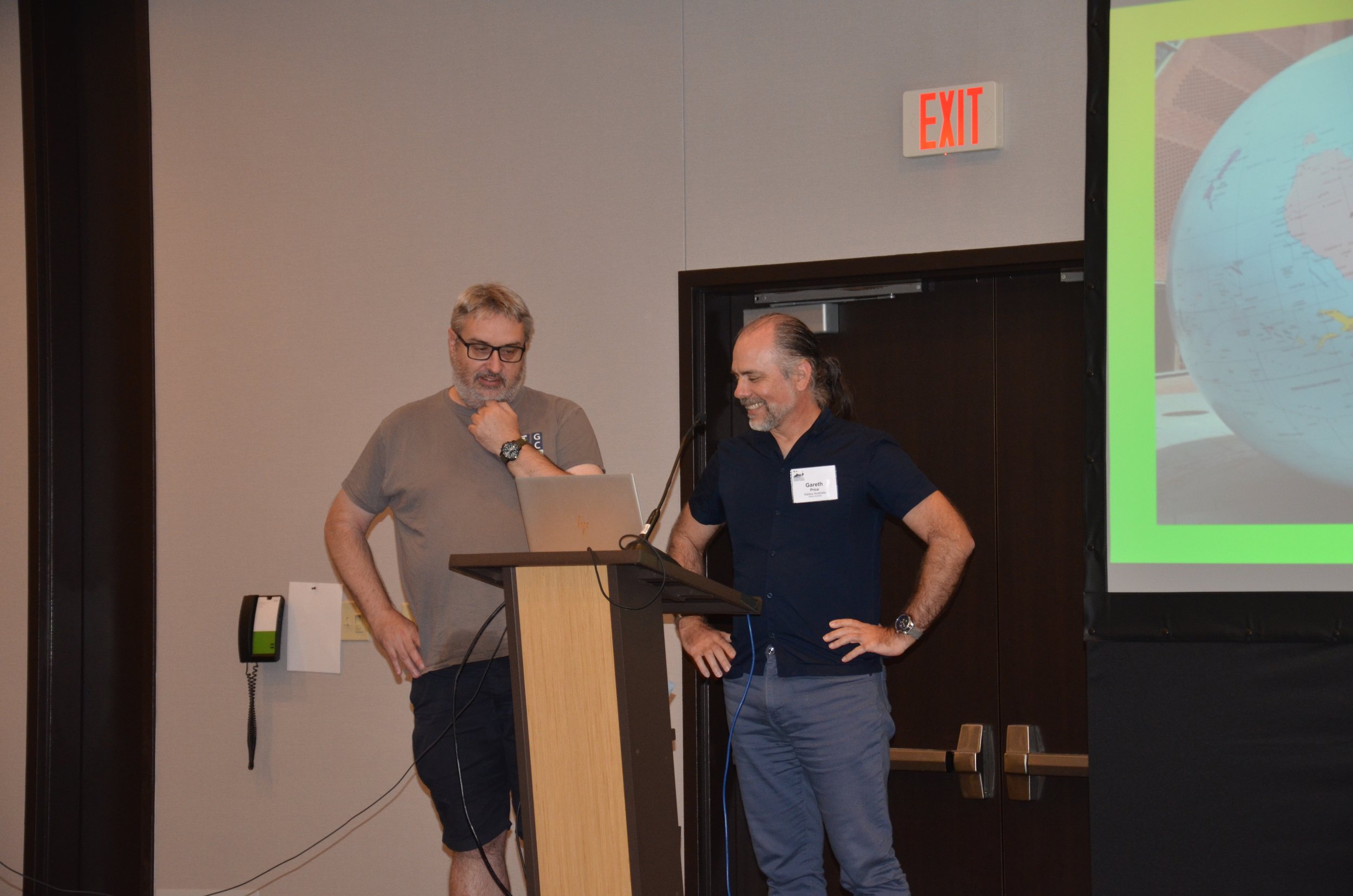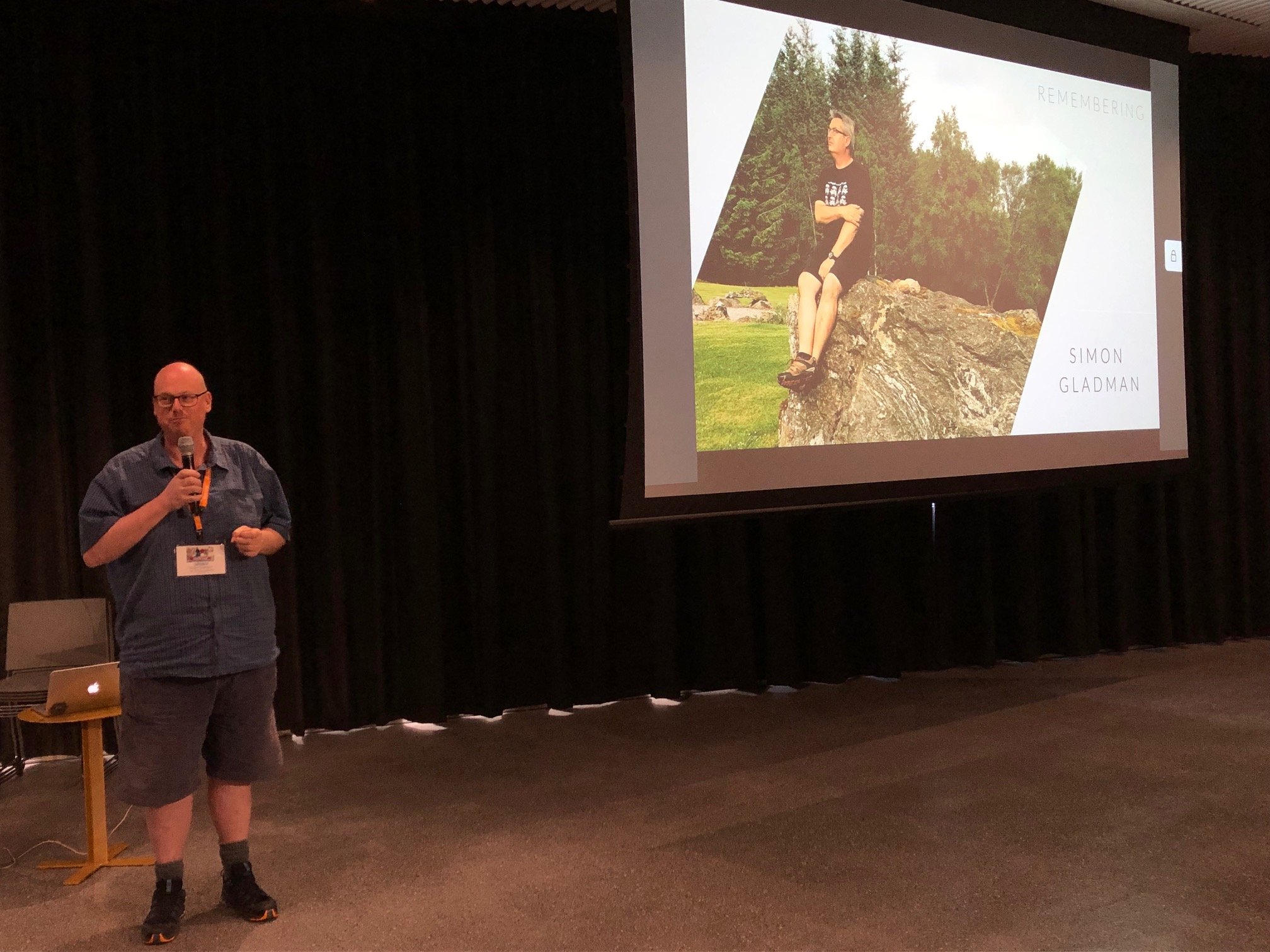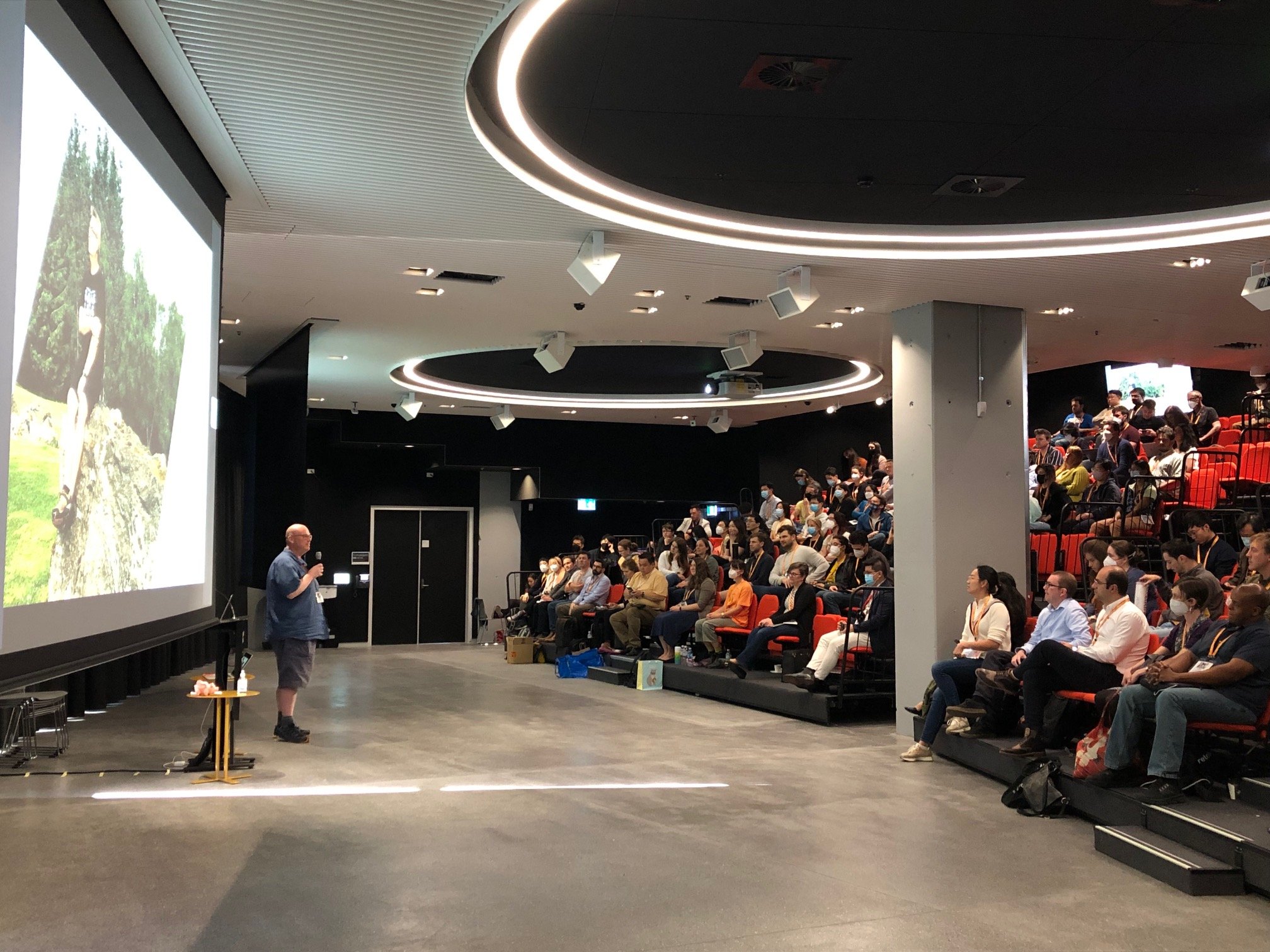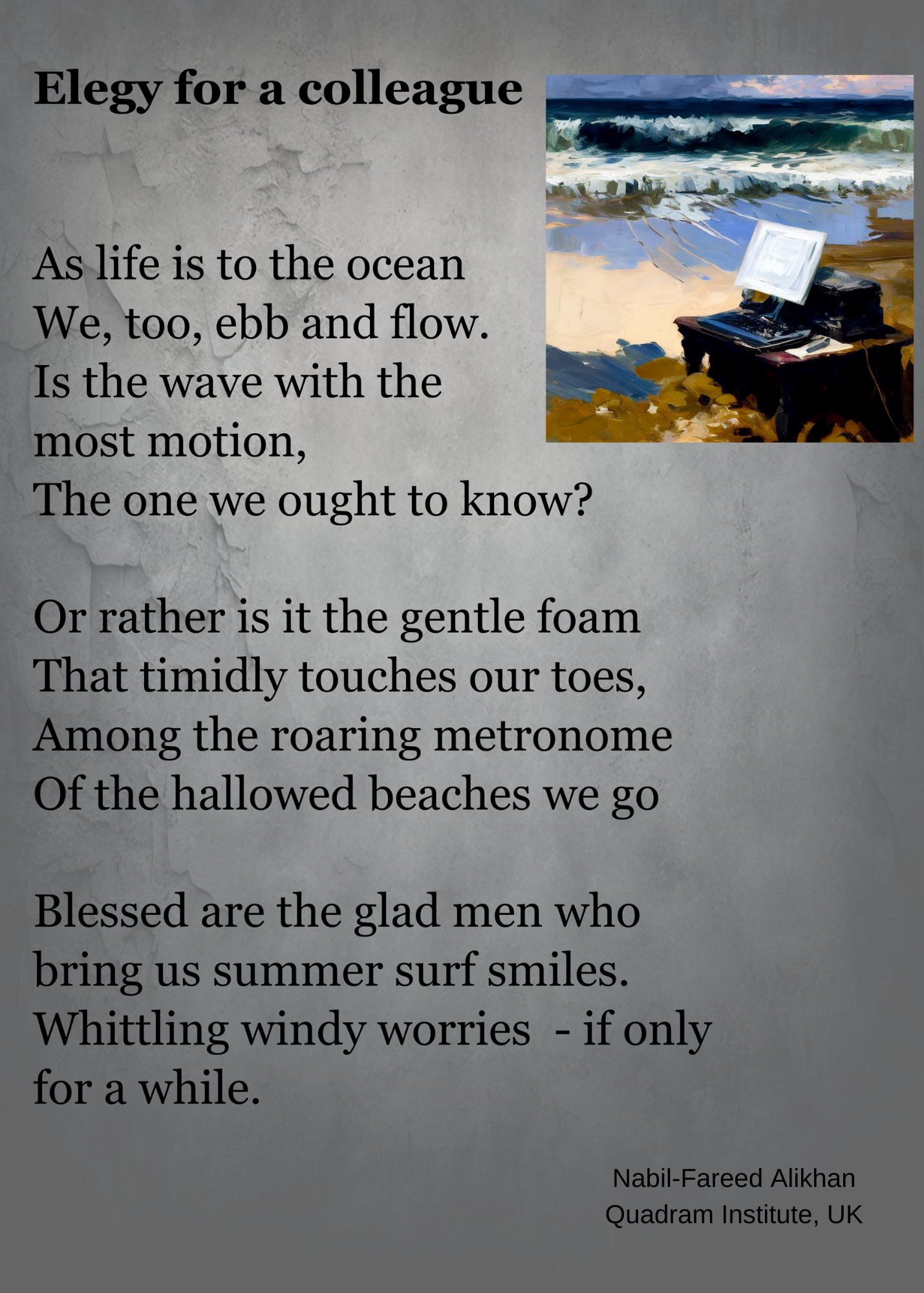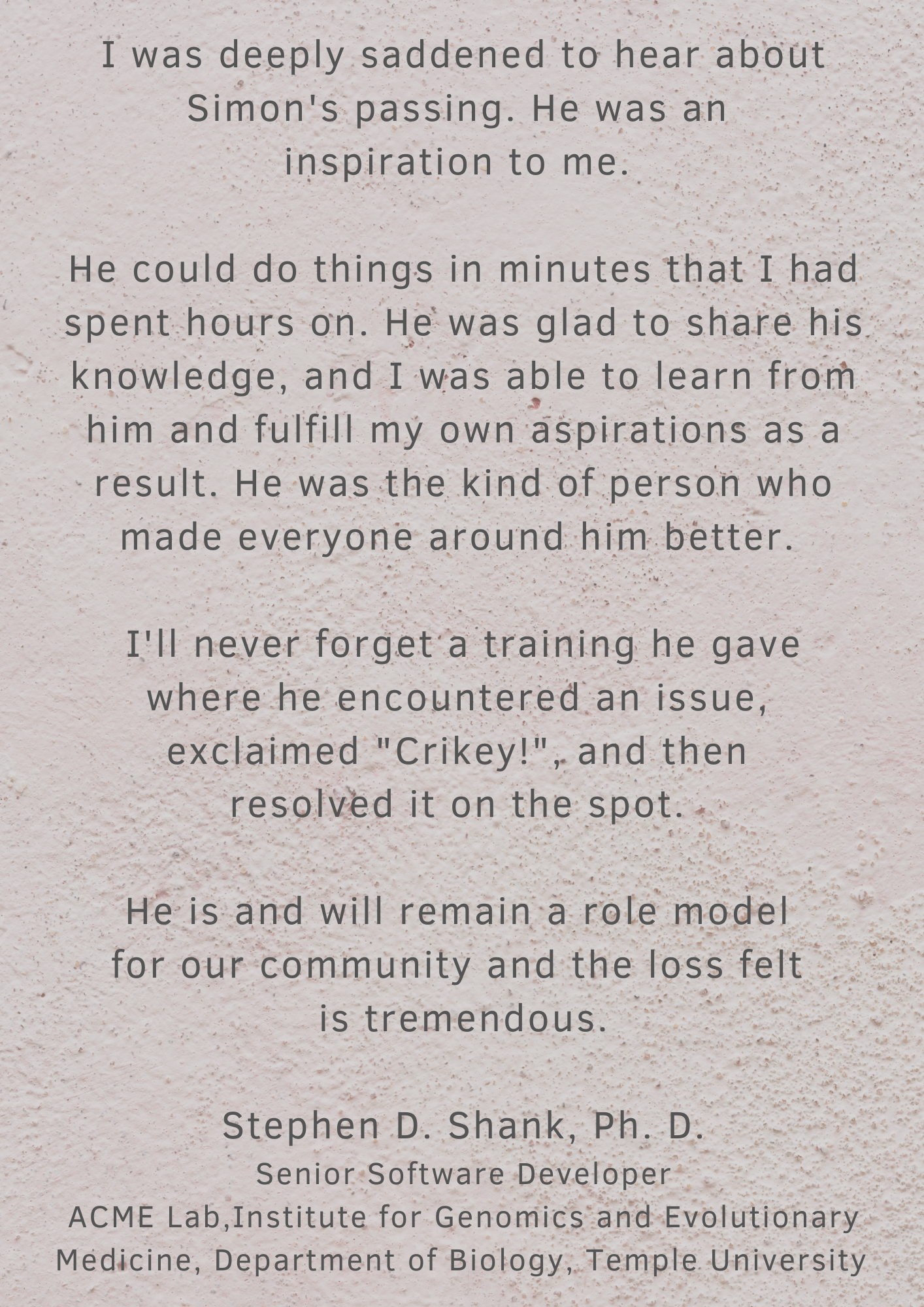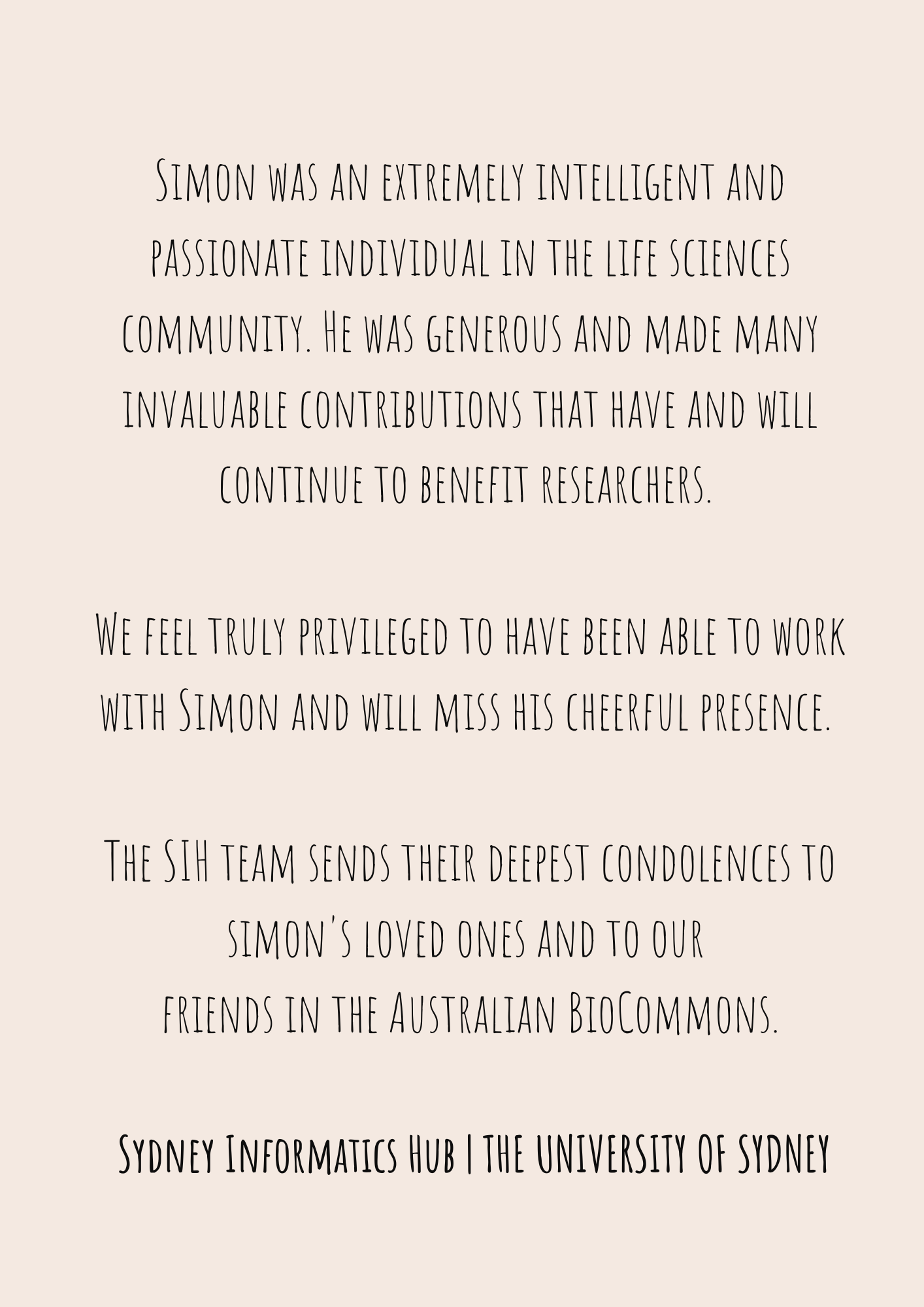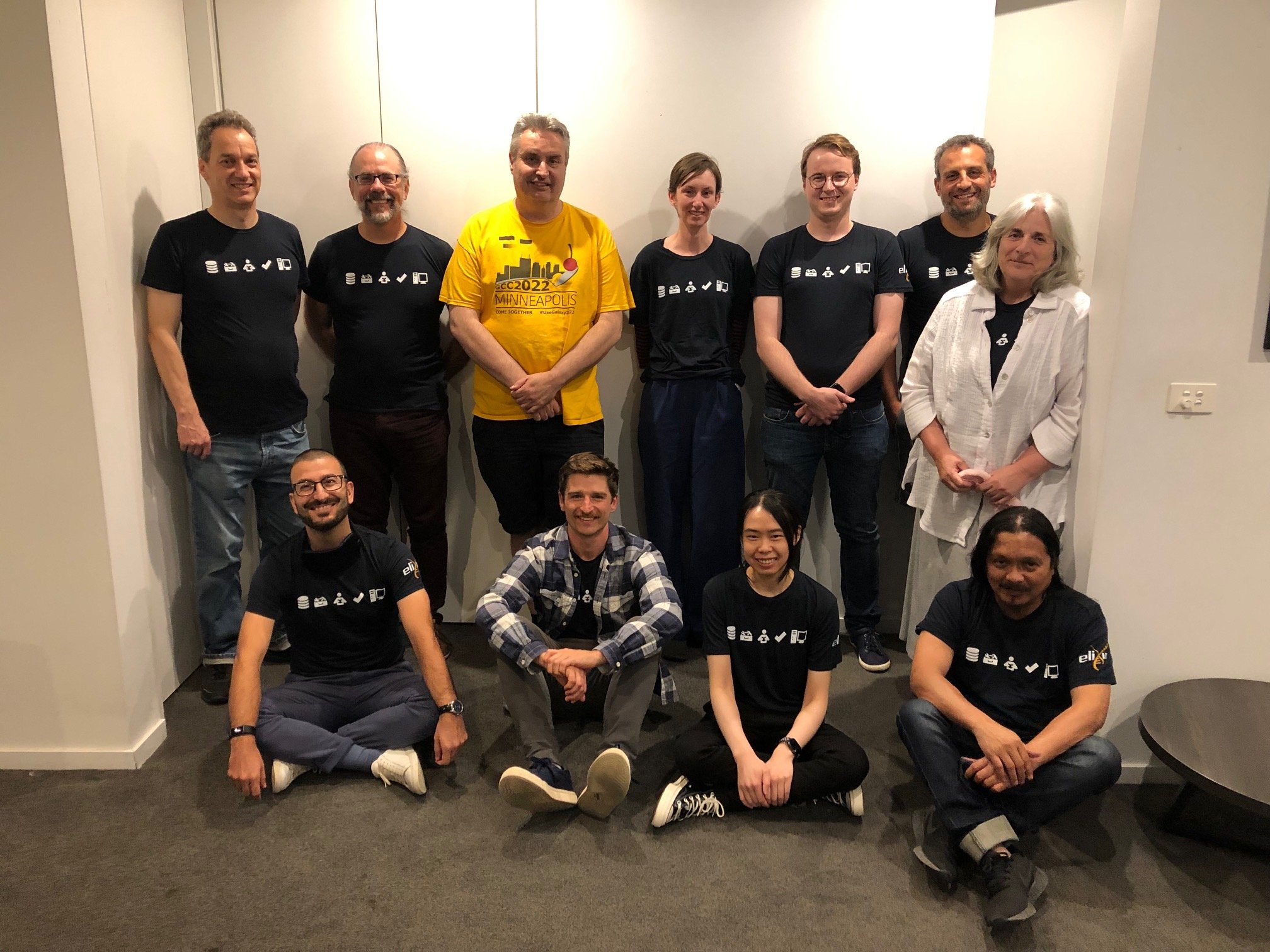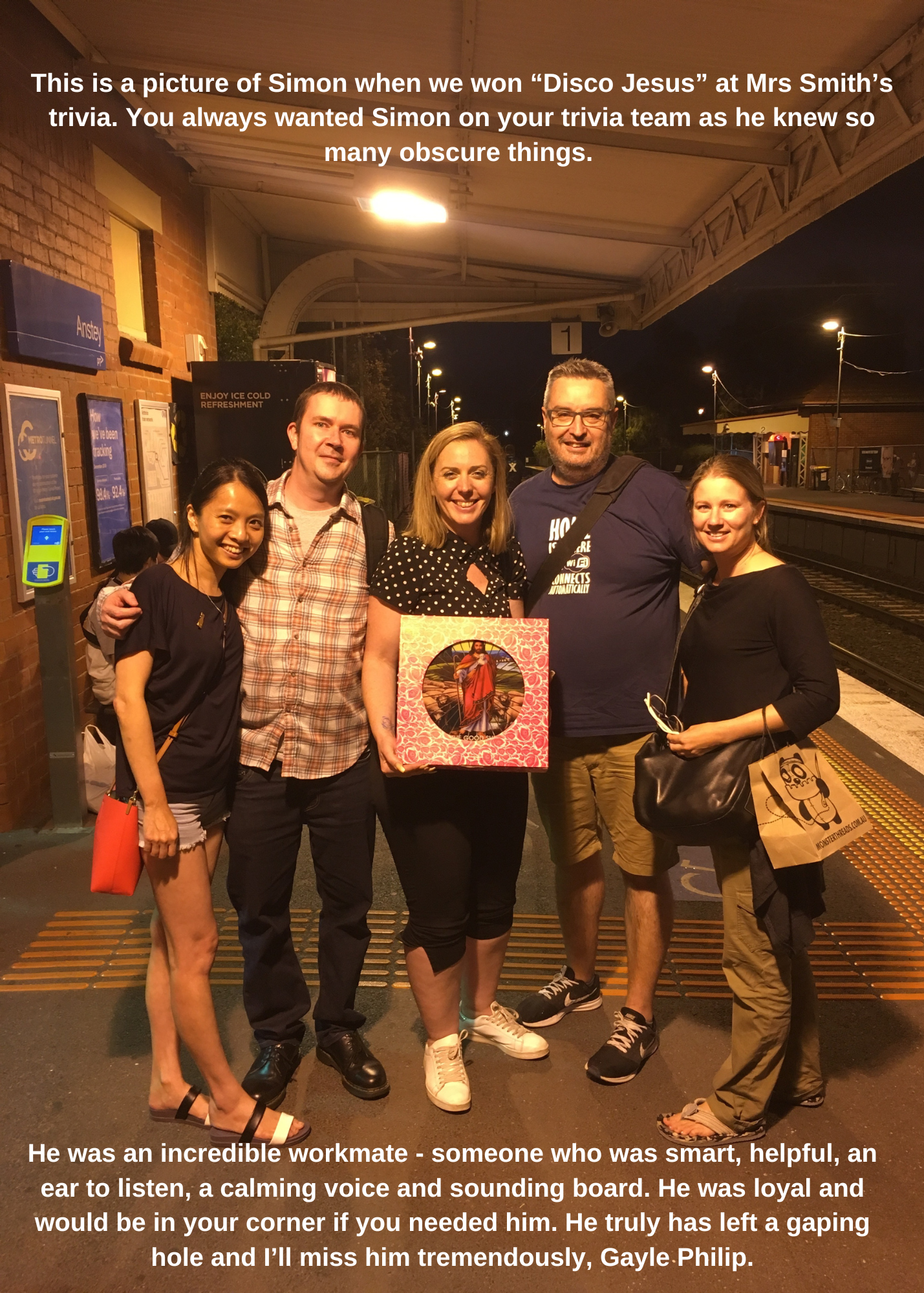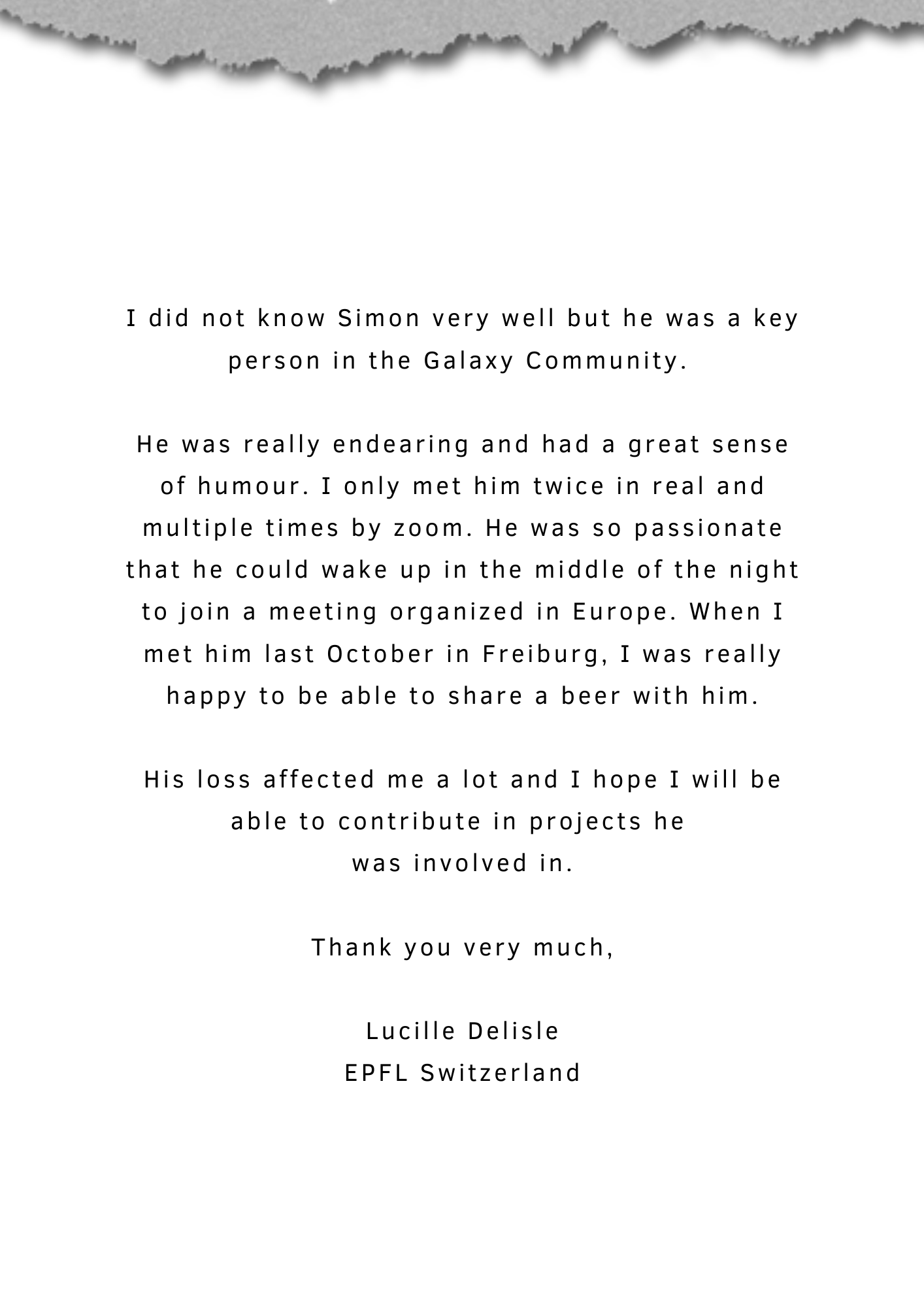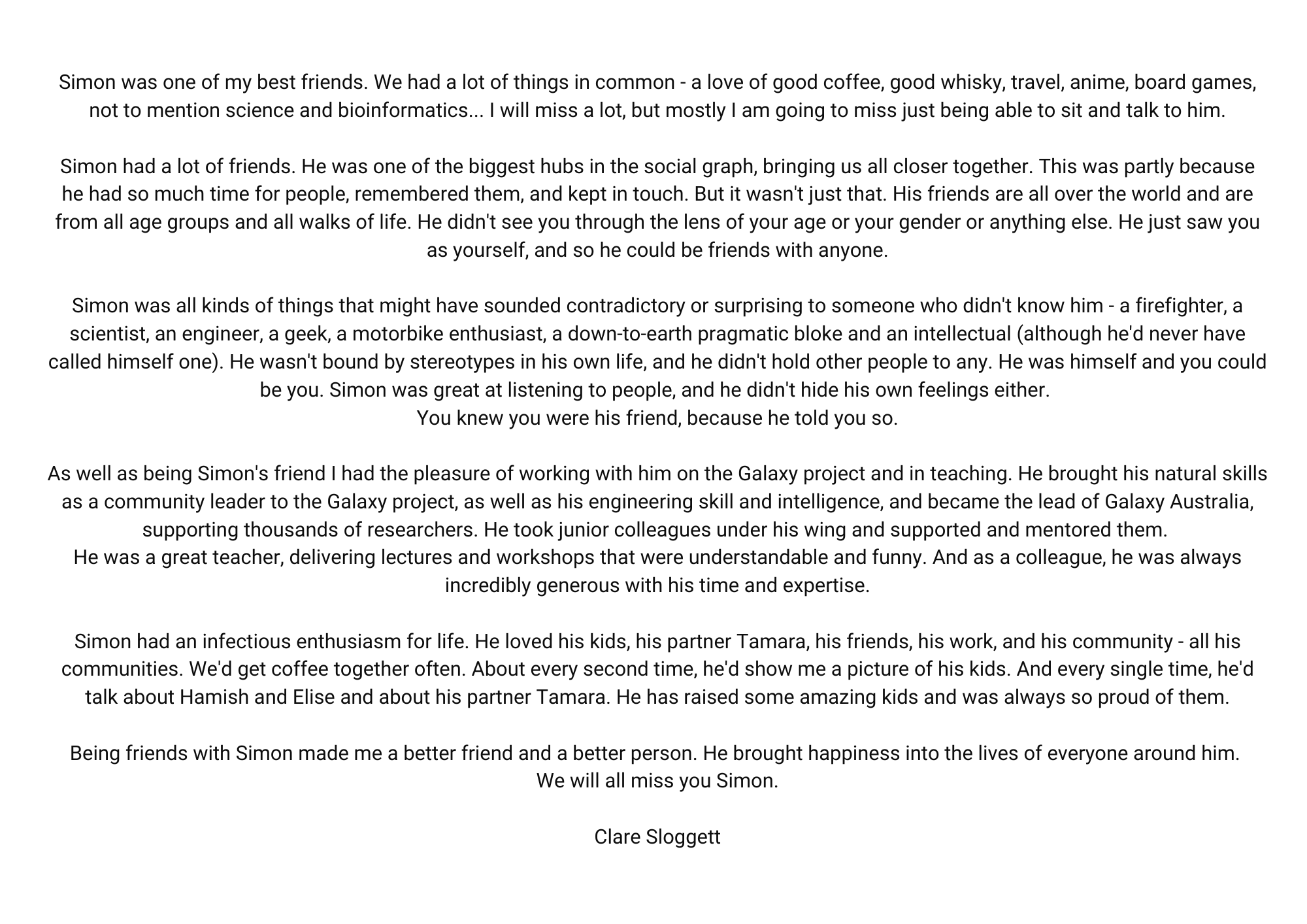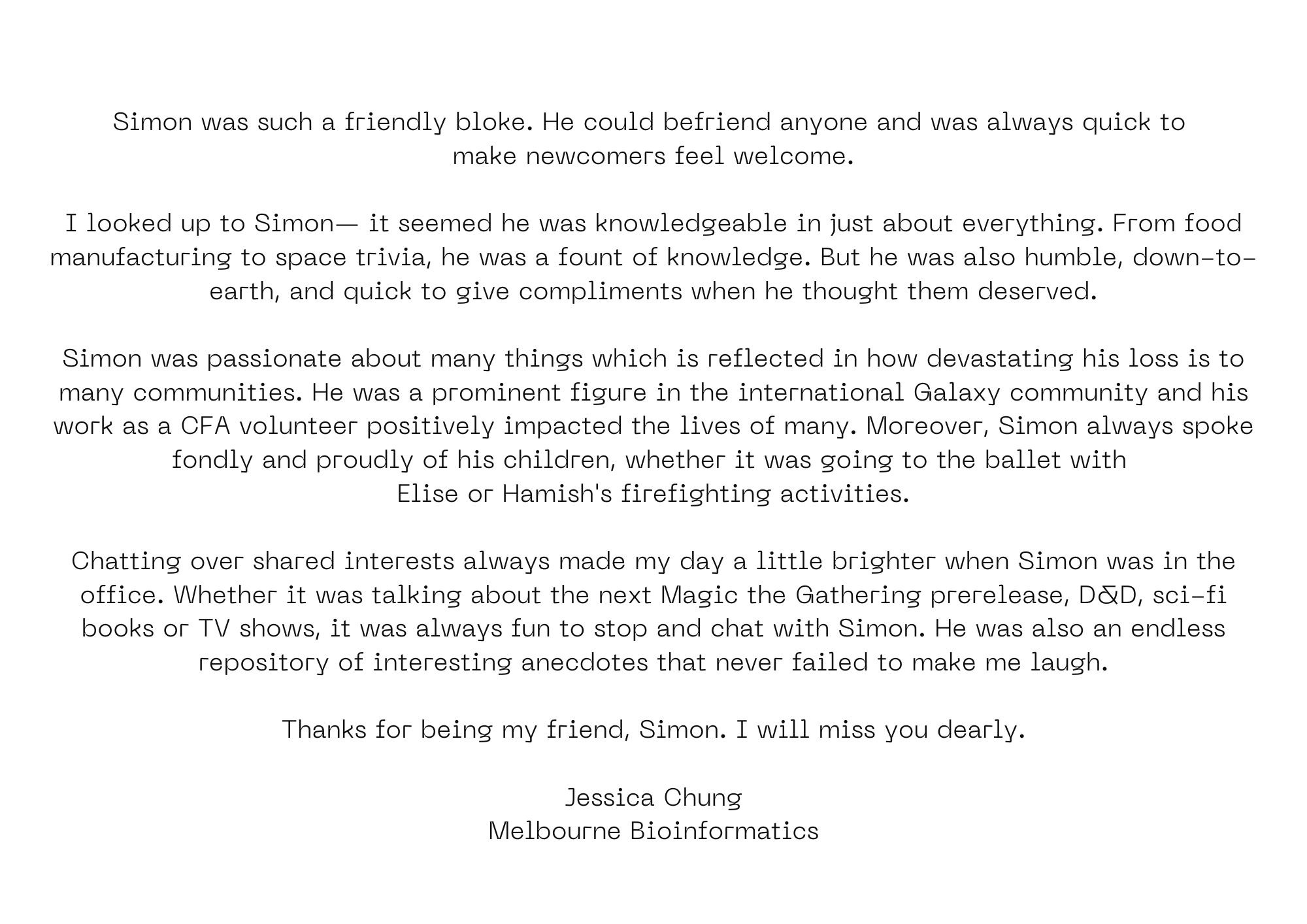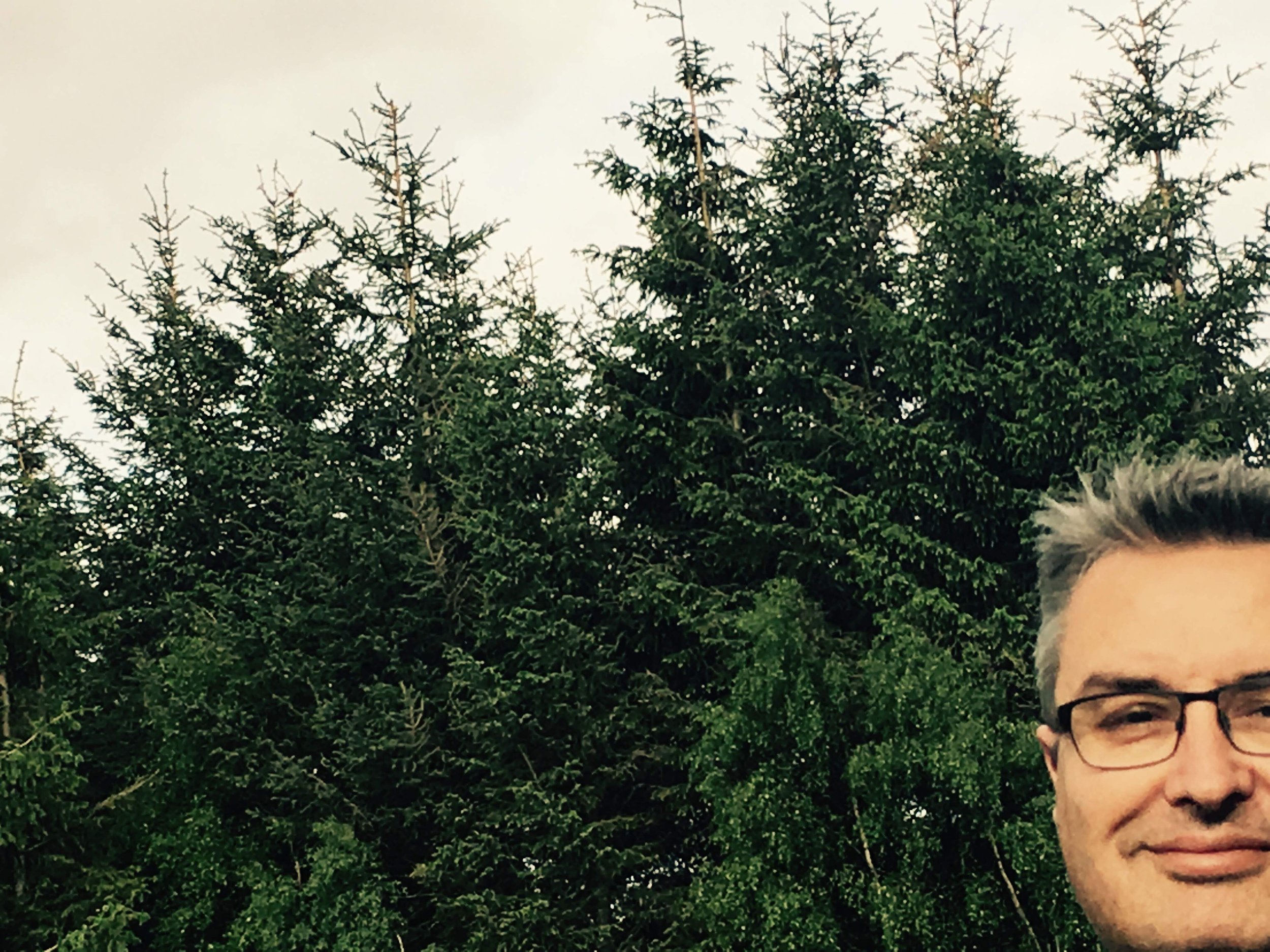News
Subscribe to the Australian BioCommons monthly newsletter or read previous editions
Collaboration boosts Galaxy services
The global Galaxy family has capitalised on the rare opportunity to work in the same timezone, with key members of the Galaxy Europe team remaining in Australia after attending the Galaxy Community Conference. Thanks to a working visit sponsored by ELIXIR Europe, significant progress has been made to improve the Galaxy experience.
Top left: Laila Los delivering the VueJS workshop. Top right: A short history of the Galaxy Training Network presented by Dr Saskia Hiltemann. Middle left and centre: Brainstorming sessions were held indoors… and outdoors. Middle right: Dolphin spotting! Bottom: Dr Saskia Hiltemann and Dr Gareth Price co-delivering the ‘Managing hands-on training with Galaxy’ webinar.
The global Galaxy family has capitalised on the rare opportunity to work in the same timezone, with key members of the Galaxy Europe team remaining in Australia after attending the Galaxy Community Conference. Thanks to a working visit sponsored by ELIXIR Europe, significant progress has been made to improve the Galaxy experience.
Dr Björn Grüning, Freiburg Galaxy team lead, welcomed the opportunity to work intensively with the QCIF and Melbourne Bioinformatics based teams:
“The chance to collaborate across all aspects of Galaxy in person has been extremely valuable. We’ve prioritised strategic discussions and sharing best practices over writing code, and now we have strong roadmaps for several projects planned out for the rest of 2023.”
Targets for development
The wide-ranging areas for development identified by these collaborative discussions will be rolled across Galaxy over the next 6 months - you can see the list of priorities on GitHub.
User experience improvements including:
A user-friendly workflow discovery page - directly inspired by Prof Carolyn Hogg’s GCC2023 keynote speech
“Pinboards” offering quick and project-specific access to your favourite workflows, tools and training
Direct plug-in of Galaxy Training to the user interface, offering recorded training sessions just one click away from tools or workflows
Adding funding information to the metadata included with tools, allowing tool writers to acknowledge grants that support their work
Optimisation and large dataset testing on Galaxy Australia of workflows from the Vertebrate Genomes Project, including one click imports to the Galaxy Australia Genome Lab.
The team have found the simple act of working next to each other particularly helpful. Dr Anna Syme, Bioinformatician at Melbourne Bioinformatics and the Australian BioCommons, said that:
“The small day-to-day interactions that only happen in person have been a great chance to share our favourite tips and tricks when working with Galaxy. For example, Björn shared that user preferences can be set to re-use previous jobs rather than running them again, which has sped up the testing process of job-heavy workflows and saved me a lot of time!”
Presentations
During the visit, there have also been several formalised knowledge sharing sessions from both the Galaxy Europe and Galaxy Australia team.
Managing hands-on data analysis training with Galaxy webinar by Galaxy Australia’s Dr Gareth Price and Galaxy Training leads Dr Saskia Hiltemann and Helena Rasche (both from Erasmus Medical Center, the Netherlands)
A two day workshop on VueJS (the framework that Galaxy is built on) led by Laila Los, software engineer at The University of Freiburg
Dr Björn Grüning discussed the semi-automated Planemo toolkit for developing, deploying and executing tools and workflows in Galaxy at the August BioChats meeting, and in a half-day, hands-on workshop at the Melbourne Bioinformatics office.
Keep a close eye on Galaxy Australia for improvements, and hear more about the upcoming developments by subscribing to the BioCommons newsletter.
Memories of Simon Gladman from his workmates
Simon Gladman’s colleagues and friends have been sharing their your memories, photos and thoughts about Simon.
Remembering Simon Gladman
It is with much sadness we share that our great friend and colleague, Simon Gladman, has died suddenly. We invite you to share your memories, photos and thoughts about Simon so we can create a tribute webpage to remember Simon and the valuable contributions he made.
It is with much sadness we share that our great friend and colleague, Simon Gladman, has died suddenly. Simon has been a community leader for many years and his passing will leave a huge gap in so many ways. Simon was a role model, a generous supporter and a trusted advisor to his Melbourne Bioinformatics and Galaxy Australia team members. His many friends and admirers will ensure that his impressive legacy will live on.
It is my privilege to have known Simon for more than a decade. I would normally say that over that time we became close friends, but actually that happened in a matter of days, as it did for pretty much everyone Simon met. Simon was a people person first and foremost and made friends not just easily, but by default - if he met you, he liked you and you liked him back - that's just the way it was.
I was lucky enough to work with Simon for the whole time I knew him. It's not often someone is both a highly admired workmate and a very close friend, but Simon was to me. It gladdens me to say that Simon loved what he did, and was very very good at it. As a people person, Simon loved building things and seeing them used by lots of people for public good, and that's exactly what he did - to an extent not many others could match. He was a global leader and a bedrock of the Galaxy community, and he will leave a devastatingly large hole professionally, socially and emotionally in so many people's lives around the world.
It's hard to find a chink in Simon's armour. He was a leader if something needed leading, he was a powerhouse if something needed doing, he was a joke teller if you needed a laugh, he was a counsellor if you were upset, he was a mentor, he was a supporter, he was an extraordinary father and partner. Simon was the one who came to the pub if you needed a drink, who came to your house if you needed a hand, first to volunteer to help and last to leave. Amongst all that, Simon somehow found time for volunteer firefighting in his beloved west Melbourne and it won't surprise anyone to know that in this very demanding job, when tragedy of all types struck his community, Simon was first on hand to pick up the pieces. He wanted nothing in return.
I don't think I saw him in anything but a good mood for the entire time I knew him and it always cheered me up seeing him. He had the gift of infecting you with his optimism and motivation just by being there - whatever the challenge was, there was an upside that Simon would find and then bring everyone along.
'Blessed are the cheesemakers' - Simon would have laughed at that. To me he was a friend first and always. I will miss him enormously.
- Andrew Lonie
We know this loss will touch so many people. Our deepest condolences to Simon’s family and all of the communities he was involved in that are now in mourning. We take some comfort in knowing that his suspected heart attack happened while he was characteristically at the centre of fun with his family.
You might like to read some of the heartfelt words that Simon’s friends and colleagues have begun sharing:
International Galaxy Community Hub
There's a growing collection page for thoughts and photos from our network, and we invite you to remember some of the good times you shared with Simon. Please send your musings about Simon to christina@biocommons.org.au.
Simon’s funeral will take place on Mon 12 December at 10.30am AEDT. It will be held at the Werribee Racecourse and you can watch live via the livestream at this link.
Data management solutions designed for Australian bioscience
Life sciences researchers are benefiting from the nifty integration that allows secure data transfer between Galaxy Australia and CloudStor. The streamlined movement of data between the two freely-available platforms demonstrates how collaboration between services are meeting the needs of Australian life science researchers.
Life sciences researchers are benefiting from the nifty integration that allows secure data transfer between Galaxy Australia and CloudStor. The streamlined movement of data between the two freely-available platforms demonstrates how collaboration between services are meeting the needs of Australian life science researchers.
The 20,500 registered users of the Galaxy Australia data analysis platform can now easily and securely move their data to and from the AARNet CloudStor research data storage platform. The integration was introduced to allow users of Galaxy Australia to more easily share data with colleagues and collaborators through CloudStor. The ability to seamlessly move data into Galaxy for analysis and back out for long term storage avoids messy local uploads and downloads.
This powerful combination of secure scalable cloud storage with a ready-to-use analysis platform comprising all the necessary compute, tools and workflows is easily accessed. CloudStor can be linked to a Galaxy user's account through a simple configuration, with data security at both CloudStor and Galaxy. Users simply navigate to their folders and files and import data directly through Galaxy’s Upload Data / Choose remote files option. Similarly, when an analysis is finished, Galaxy users simply invoke the “Export datasets to remote files source” where they can select single, multiple or dataset collections for export to CloudStor.
If you are interested in using the Galaxy Australia and CloudStor integration, further information is available to support you to make the connection.
Galaxy Australia is an Australian BioCommons service, jointly supported by the Australian Government’s National Collaborative Research Infrastructure Strategy (NCRIS) through the Australian Research Data Commons and Bioplatforms Australia; the Queensland Government’s Research Infrastructure Co-investment Fund; and The University of Melbourne.
Managed by QCIF, Melbourne Bioinformatics and AARNet, Galaxy Australia is underpinned by computational resources provided by AARNet, the ARDC, The University of Melbourne, The University of Queensland, QCIF, National Computational Infrastructure, and the Pawsey Supercomputing Centre.
The BioCommons BYOD [Bring Your Own Data] Expansion Project received investment (doi.org/10.47486/PL105) from the Australian Research Data Commons (ARDC). The ARDC is funded by the National Collaborative Research Infrastructure Strategy.
Popularity of Galaxy Australia prompts move of core services to AARNet
Galaxy Australia has moved its head node and associated services to Australia’s Academic and Research Network (AARNet) to allow increased on-demand support for more users. This move provides a long-term, high-performing and reliable hosting environment for Galaxy Australia infrastructure.
As a key web-based platform for bioinformatics analysis in Australia, Galaxy Australia is focused on maintaining a robust front-end web presence with the scalable capacity and high performance expected by researchers. A continuous improvement approach is in place to ensure the needs of a growing cohort of researchers registering for the service are met.
Galaxy Australia has moved its head node and associated services to Australia’s Academic and Research Network (AARNet) to allow increased on-demand support for more users. This move provides a long-term, high-performing and reliable hosting environment for Galaxy Australia infrastructure. Importantly, the move also enables the Pawsey Supercomputing Research Centre (Pawsey), a tier one national infrastructure available to all researchers in Australia, to focus on providing back-end compute services to power Galaxy Australia’s more than 1,800 installed tools, covering genomics, proteomics and metabolomics, statistics and data visualisations.
AARNet is a national resource owned by Australian universities and national science agency CSIRO and has provided ultra-high-speed telecommunications and collaboration services specifically for research and education for more than three decades. A trusted sector partner renowned for an exceptionally high level of service delivery, AARNet will provide Galaxy Australia with 24/7 operational monitoring and response services, seamless network configuration and failover management, and the hardware capacity to support user and data growth projections.
With the AARNet team taking care of all the front-end physical infrastructure operations, the Galaxy Australia team can focus on using computational resources at Pawsey, University of Melbourne, QCIF, and Azure to meet the growing needs of the more than 19,500 registered users of the service.
Prior to the deployment to AARNet, an integrated team working across AARNet, Pawsey, Queensland Cyber Infrastructure Foundation (QCIF) and Melbourne Bioinformatics undertook many months of exhaustive preparation and testing. This all paid off, with little service downtime experienced during the deployment and Galaxy Australia jobs now running successfully from AARNet.
We are delighted to be providing a high-performing long-term hosting solution that will support the growth and development of Galaxy Australia and help life sciences researchers with their important work. This is a great example of how AARNet works closely with sector partners to solve complex technical problems with infrastructure and make it easier for researchers to analyse data and collaborate.
Chris Hancock, AARNet CEO
AARNet joins QCIF and Melbourne Bioinformatics in the collective responsibility for the management of the Australia BioCommons’ Galaxy Australia service.
The move to AARNet means our existing and new users will experience fast response times across all aspects of their Galaxy experience - homepage loading, history refreshes, and workflow execution to name a few. On top of the performance improvements, we add new tools weekly, have annotated tools to aid in discovery, and updated our support options. If it's been a while since you last visited Galaxy Australia I recommend coming back for a visit.
Gareth Price, Galaxy Australia’s Science Lead
Galaxy Australia is an Australian BioCommons service, jointly supported by the Australian Government’s National Collaborative Research Infrastructure Strategy (NCRIS) through the Australian Research Data Commons and Bioplatforms Australia; the Queensland Government’s Research Infrastructure Co-investment Fund; and The University of Melbourne.
Managed by QCIF, Melbourne Bioinformatics and AARNet, Galaxy Australia is underpinned by computational resources provided by AARNet, the ARDC, The University of Melbourne, The University of Queensland, QCIF, National Computational Infrastructure, and the Pawsey Supercomputing Centre.
The BioCommons BYOD [Bring Your Own Data] Expansion Project received investment (doi.org/10.47486/PL105) from the Australian Research Data Commons (ARDC). The ARDC is funded by the National Collaborative Research Infrastructure Strategy.
This announcement was co-published with AARNet.
Galaxy Australia to host next year's international Galaxy Community Conference
The Galaxy Community Conference is coming to Brisbane after years of campaigning by the Galaxy Australia team to bring this international event to our shores. GCC2023 will bring together hundreds of researchers, trainers, tool developers, software engineers, and computational infrastructure providers, from all over the world. This unique meeting offers a range of ways to exchange information about using the Galaxy data integration and analysis platform for data intensive science.
The Galaxy Community Conference (GCC) 2023 will come to Brisbane after years of campaigning by the Galaxy Australia team to bring this international event to our shores. The winning bid to host GCC2023 was announced overnight at GCC2022 in Minneapolis, Minnesota, USA.
Galaxy Australia’s Science Lead and Head of Computational Biology at QCIF Facility for Advanced Bioinformatics, Dr Gareth Price is elated:
Being entrusted with hosting the international GCC conference is recognition of how important our part of the world is to the Galaxy community. It’s a great opportunity to forge stronger ties with our regional colleagues while showcasing Australia to our US and European peers.
GCC2023 will bring together hundreds of researchers, trainers, tool developers, software engineers, and computational infrastructure providers, from all over the world. This unique meeting of back end developers, service deployers and research users offers a range of ways to exchange information about using the Galaxy data integration and analysis platform for data intensive science.
This annual gathering of the Galaxy community includes training, talks, posters, demos, Birds of a Feather meetups, and many other opportunities for collaboration and networking. The Galaxy community is a friendly and welcoming bunch and this conference is always a fun way for delegates to share their work and learn from others working in Galaxy-related data-intensive science.
The international Galaxy community hopes that the first GCC in the southern hemisphere will see many Galaxy users from the Asia Pacific region travelling to the Brisbane conference. Galaxy Australia is confident that GCC2023 will be a wonderful opportunity to strengthen ties between the Galaxy communities found in places like New Zealand, India, Japan and Africa.
We’ll keep you posted as the conference takes shape. Subscribe below to updates and we’ll hopefully make the decision easy to join us for GCC2023!
Galaxy Australia featured in new publication about impact
Australian Research Data Commons has published a new impact booklet documenting how digital research infrastructure ensures Australian researchers are internationally competitive, including Galaxy Australia as a case study.
Australian Research Data Commons’ new impact booklet, Accelerating Research and Innovation Through Data has been published. It documents how digital research infrastructure ensures Australian researchers are internationally competitive through access to high-quality data assets, platforms, infrastructure, policies, people and training.
Galaxy Australia is one of the case studies chosen to demonstrate the importance of excellent research infrastructure to everyday life. It tells the story of how thousands of life scientists have used the research platform Galaxy over the past decade to analyse large biological datasets, accelerating research and innovation to understand diseases and improve health.
Global Research Infrastructure is Key for Fighting the Pandemic
Ready-made training environments for uplifting computational science skills in plant biosecurity
Molecular biologists and plant pathologists recently came together to learn how to use Galaxy Australia to implement small RNA sequencing for the detection of viruses and viroids in imported plants at the Department of Agriculture, Water and the Environment’s Post Entry Quarantine (PEQ) Facility.
Molecular biologists and plant pathologists recently came together to learn how to use Galaxy Australia to implement small RNA sequencing (sRNA-Seq) for the detection of viruses and viroids in imported plants at the Post Entry Quarantine (PEQ) Facility in Mickleham, Victoria.
The Science and Surveillance Group from the Australian Government’s Department of Agriculture, Water and the Environment took part in a three-day viral pathogen detection workshop from 23-25th May. During the intensive hands-on training, the group of fourteen learnt how to process sRNA-Seq data using a bespoke Galaxy Australia pipeline, GA-VirReport.
Participants made the most of Galaxy Australia’s tools and dedicated job queue for training during the workshop. Instructors from the Queensland University of Technology (QUT) reported that the workshop received a unanimous 5-star rating from attendees. The feedback received from the mostly beginner audience was that almost everyone left feeling ‘very comfortable’ performing basic functions in Galaxy Australia, as well as using the tailored Galaxy Australia workflows for processing sRNA-Seq data and reporting positive detections.
Researchers are increasingly using Galaxy Australia for their training events as it provides a stable service for the planning and delivery of training. Supported by ample computing resources to scale with the size of the event, it comes with a robust set of over 1,500 tools and offers a dashboard of attendee progress that facilitates real-time management of jobs and immediate troubleshooting - vital both in face-to-face and online training events.
In addition to the pathogen detection workshop, over 4,500 participants taking part in 42 other training events have logged on and run their hands-on exercises on Galaxy Australia in the past 18 months. These include training delivered by individual universities, national consortia, international conference workshops and global training events - including the wildly successful Galaxy Training Network Smorgasbord.
Dr Ruvini Lelwala, Research Associate in Bioinformatics at the School of Biology & Environmental Science, QUT, was one of the instructors in the hands-on training in processing sRNA-Seq data for virus and viroid testing in plants. Dr Lelwala is an experienced user who leverages the Galaxy Australia service to develop enhanced diagnostics for the detection of exotic plant pathogens.
“I would like to thank the Galaxy Australia support team for their continuous support throughout the project which extends far beyond this workshop. The workshop itself was successful in delivering bioinformatics training to molecular biologists with limited experience in handling high throughput sequencing data using the Galaxy Australia platform.”
High Throughput Sequencing enables the rapid detection of viruses and viroids in imported plant material in a single test and can accelerate the release of quarantined plant genetic stocks. This research ultimately aims to give growers faster access to new plant stock and a competitive boost to the Australian horticulture sector.
All Australian scientists can utilise the simple training interface and sophisticated behind-the-scenes infrastructure to support their training events. For further information about how Galaxy Australia can support your training events, contact the Galaxy Australia team at help@genome.edu.au.
The two projects underpinning the GA-VirReport workshop are:
The project Improving access to new germplasm through faster and more accurate diagnostics (MT18005) is funded by Hort Innovation using citrus, nursery, raspberry and blackberry, fresh and processing potato and table grape research and development levies, co-investment from Queensland University of Technology and contributions from the Australian Government. Hort Innovation is the grower-owned, not-for-profit research and development corporation for Australian horticulture.
The project Transformation of exotic plant disease testing at PEQ, Mickleham by implementation of high-throughput sequencing (BIP202048) is funded by the Department of Agriculture, Water and the Environment (DAWE) Biosecurity Innovation Program.
A new streamlined Galaxy Australia interface
You may have already noticed a new streamlined interface when submitting your latest job to Galaxy Australia. If not, it’s time to check out the refreshed Galaxy Australia landing page!
Important functions in Galaxy Australia have been streamlined, including access to the tutorial library and support requests for tools and data.
You may have already noticed a new streamlined interface when submitting your latest job to Galaxy Australia. If not, it’s time to check out the refreshed Galaxy Australia landing page!
Important functions in Galaxy Australia have been streamlined, including access to the tutorial library and support requests for tools and data. The comprehensive improvements to the user interface mean the landing page has updated news and events tables, and more accurate acknowledgement of Galaxy’s partnerships.
“These updates are a part of an ongoing phase to improve the user experience of Galaxy Australia. We have brought together a group of Galaxy experts, designers and developers to continue to push the envelope of what is possible with the service and ensure that it continues to provide the latest in life science analytics in the most user friendly manner - the key to Galaxy success as such an accessible and useful service.” Madeline Bassetti, Galaxy Australia’s UI/UX Designer
Galaxy Australia welcomes feedback as they move through this development, so if you’d like to share your thoughts on the new design, please contact help@genome.edu.au.
Galaxy functionality is also undergoing constant development by the international team, with updates announced regularly. The latest release of Galaxy 22.01 offered a wide range of improvements.
New Colour Selector: Do you use tools which require colour inputs, like Circos? You now have complete freedom of choice for your colour palette.
Improved File Uploads: A new upload method makes file uploads significantly smoother, and will be more tolerant of network failures and interruptions.
Improved File Export: The amazing new remote file source export allows you to export files from Galaxy to FTP, Dropbox, and other locations.
Beta History: Collection Improvements: The beta history (which will be the default history in the next release in mid 2022) has been updated to indicate whether collections are homogeneous or heterogeneous. This will save you time and difficulties if you mistakenly build a collection containing variability likely to cause your downstream analysis to fail.
Galaxy starts as a FastAPI application by default: Galaxy now supports interruption free restarts, allowing the Administrators to keep the service running whilst you keep analysing.
User Preferences can be encrypted in Galaxy Vault: Galaxy can now be configured to store secrets in an external vault, which is useful for secure handling and centralisation of secrets management.
Check out the Galaxy 22.01 announcement for an overview and short videos explaining the improvements, or read the full release notes for (a lot more) details and instructions for upgrading your Galaxy installation.
AlphaFold now available in Galaxy
Galaxy Australia provides Australian researchers access to a rich catalogue of computational resources - now including the GPU clusters required to power AlphaFold. Seizing the opportunity to further democratise access to this useful tool, the Galaxy Australia team got to work to make AlphaFold 2.0 available in Galaxy.
It seems the whole world is talking about AlphaFold, the AI system that predicts a protein’s 3D structure from its amino acid sequence that achieves accuracy comparable with real-life experiments. There was much fanfare last year when DeepMind published the scientific paper and source code that explained their innovative system.
In partnership with EMBL’s European Bioinformatics Institute (EMBL-EBI) the predictions for the shape of every single protein in the human body, as well as for the proteins of 20 other important organisms were made freely available to the scientific community.
Understanding a protein’s structure helps us to understand their function, and is traditionally achieved through slow, laborious experimentation. Painstaking effort over many years has determined the structures of around 100,000 unique proteins, but this represents just a tiny fraction of the billions of known protein sequences. Using computational approaches to enable large-scale structural bioinformatics to predict protein structures now promises to fast track our understanding of protein structure.
The team at Galaxy Australia saw an opportunity to further democratise access to this useful tool by making AlphaFold 2.0 available in Galaxy. Galaxy Australia provides Australian researchers access to a rich catalogue of computational resources and now includes the GPU clusters required to power AlphaFold 2.0. Life scientists can now easily visualise the consequences of DNA variants at the protein level, accelerating understanding of protein-protein interactions, activation or inhibition studies and drug design as examples.
It was an ambitious and technically challenging task, made possible through the work of multiple people around Australia, and indeed the world. While Galaxy Australia Developers and Admins laboured away to make the specific hardware, reference data and environment setup work together, Galaxy EU provided the necessary GPU-enabled development machine to test the approach. This technical triumph means that AlphaFold 2.0 is now available for installation on all Galaxy services globally, via the Galaxy toolshed. If you are interested in the technical details, you can visit the development repository.
Thanks to Galaxy Australia, the new Australian AlphaFold Service is now taking amino acid sequence uploads. All the set-up and provisioning of underlying GPU infrastructure are taken care of, so researchers can focus on generating the protein 3D structure itself. The service is currently available to early adopters for testing and benchmarking. If you think you might have a great research application for using AlphaFold in Galaxy Australia, please submit an expression of interest.
The work forms part of an exciting broader project to expand Galaxy Australia to utilise commercial cloud resources, enabling massive scale-up of the platform and access to specialised resources. It is expected that Galaxy Australia’s AlphaFold jobs will run soon on the Azure Cloud thanks to an Australian BioCommons collaboration with BizData and Microsoft Azure.
Stay tuned for upcoming stories explaining how early adopters are using the new resource on Galaxy Australia. If you are excited that your research questions can be answered by using the new Australian AlphaFold Service, let Galaxy Australia know via this form.


